#huge fan of islamic relief
Text
just as a reminder, islamic relief has an emergency palestine appeal that you can donate to, they’ve been working to help palestinians with food and education and support since 1997. there is more important information that you can look at and a donation link here:
96 notes
·
View notes
Note
1 and 2 for kaori, jun, george, and/or othello?
AAAAAAA, MY KIDS.
1 — Holiday Headcanon
Kaori: She is a crass and unapologetic Christmas fan in this age of popular cynicism, finding relief in any excuse for people to be decent to each other for a while. She also loves the wintertime and pine trees, and it feels like a pristine, more lively atmosphere to her.
Jun: He loves Halloween for mostly the same reason as anyone else: free candy, creativity in costumes, and an appreciation for the ugly and unkind creatures of the world— as a myth nerd, of course. But more than anything, it lets him use his lack of legs for creative means, sometimes even using the wheelchair he hates to get praise, rather than side-glances and the usual coddling. (Bonus holiday fact: Jun was born on Christmas!)George: Despite his Irish heritage, George has a huge amount of disdain for St. Patrick’s Day. As a matter of fact, one of his most viral skits is about a rather vengeful Christian saint who was kind of a dick that cursed people. He writes it off as a silly excuse to drink when there are already plenty.
Othello: Though he isn’t very open about it abroad, he does practice Islamic holidays, and makes a tradition every year at the end of Ramadan (Eid al-Fitr) to donate sizeable amounts of his earnings to an organization chosen by online poll.
2 — Cooking Headcanon
Kaori: Definitely an avid chef for fun, she definitely pours through google and pinterest for recipes, and may or may not have a secret guilty pleasure found in cooking shows. As such, she can sometimes overestimate herself when experimenting, and I’d say four of those experimental dishes would be edible out of five.
Jun: Usually orders out, but knows 786 recipes with Top Ramen as a base.
George: Surprisingly great chef, having cooked for him, his sister and other orphans plenty of times during their childhood. As such, loves cooking en masse in giant cast-iron skillets and pots, with stews, steak and liver & onions being his specialties.
Othello: He is a die-hard curry man at heart, and he loves him some spice. Thai and South American cuisine are close runners-up, but Indian curry will always take the number one spot.
2 notes
·
View notes
Text
Top-Rated Tourist Attractions in Konya
The important place of religious pilgrimage in Konya has a city center filled with museums and monuments of Seljuk splendor. Most tourists stop here just to see the Mevlana Museum and the tomb of the founder of the whirling dervish Mevlana Rumi, who wrote his famous poetry here in the 13th century.
But this central Anatolian city is also full of architectural attractions of mosques and old madrassas (schools of theology) which highlight the artistic talent of the Seljuk sultanate. Anyone interested in the history of Turkey should not miss a visit here. Discover the best places to visit with our list of the best tourist attractions in Konya.
Tile Museum (Karatay Medresesi)
This old madrassa (theological college) was founded in 1251 by the Seljuk emir Celaleddin Karatay. The building was recently restored and is now an impressive museum with Seljuk enamel tiles.
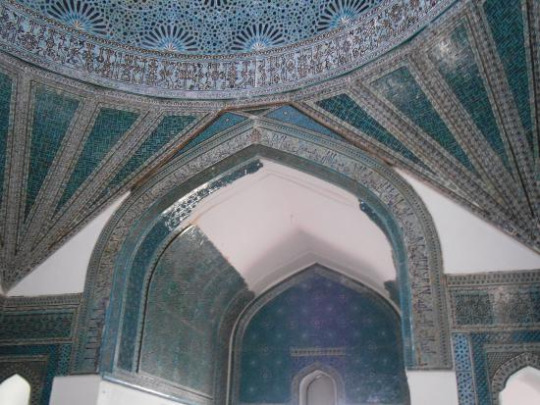
While visiting a tile museum may seem like a rather niche tourist attraction, the sheer beauty of the building makes it one of the best things to do on a Konya sightseeing itinerary. Its interior walls are covered with magnificent examples of Seljuk tiles and there are also ceramic exhibits of excavated finds from nearby archaeological sites. In the room on the left is the tomb of Celaleddin Karatay.
Mevlana Museum
The symbol of Konya is this complex tekke (Sufi lodge) that contains the tomb of the religious leader, philosopher and poet of the thirteenth century Mevlana Celaleddin Rumi, who founded the dervish sect of Sufism. The museum is located in lovingly maintained rose gardens, through which you walk to the ornate Dervisan Kapisi (Dervish Gate).
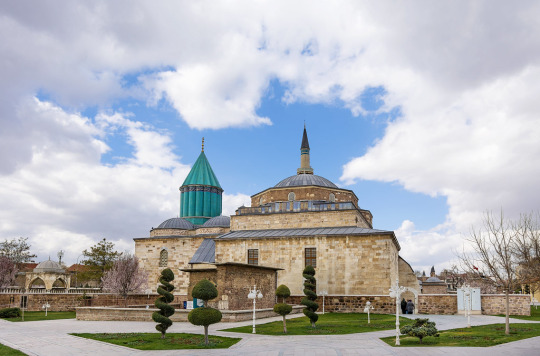
Once inside the complex, you enter the Mausoleum, which is the focus of much devotional worship to this day. Mevlana's tomb is at the other end, flanked by graves of close relatives and followers. The Semahane (hall where dervish ceremonies were held) is on the left and contains a museum of religious exhibitions.
Across the courtyard of the Mausoleum is the kitchen of the lodge, which contains dioramas of dervish life and is connected to Dervish Cells, where the Sufi followers would have lived and now contain exhibits on dervish life.
Koyunoglu Museum
Avid collector Ahmet Izzet Koyunoglu, a member of one of Konya's oldest families, bequeathed his strange and eccentric collection of artifacts, art, ethnography objects, geological items and simple things, to the city of Konya when he died.
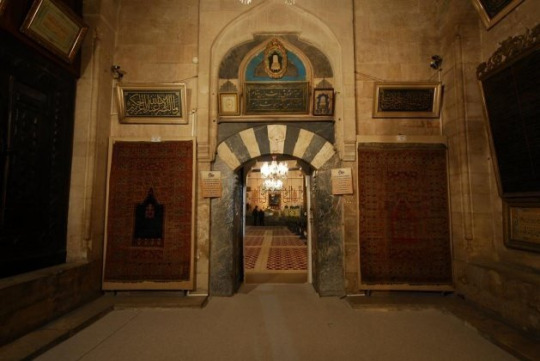
The museum that resulted from this has to be the most peculiar view of the city. The building is a treasure trove of scattered, strange and wonderful exhibits ranging from rare paintings, manuscripts and carpets to stuffed animals and watches. For anyone who appreciates the slightly eccentric, this is a wonderful accompaniment to the city's most traditional attractions.
Museum of Wooden and Stone Carving (Ince Minare Medrese)
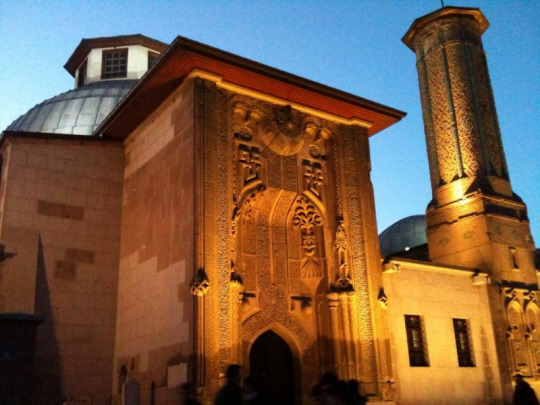
The Ince Minareli Medrese (Seminary of the Slim Minaret) lost the minaret in its name when it was struck by lightning in 1905. The madrassa was built in 1260 for the vizier Seljuk Sahip Ata, and the design presents a richly sculpted decoration on the portal. The building is now a museum, with a large collection of wood and stone sculptures from the Seljuk era that include animal reliefs (despite representations of animals and humans prohibited by Islamic law) from the city's ancient walls.
Archaeological Museum
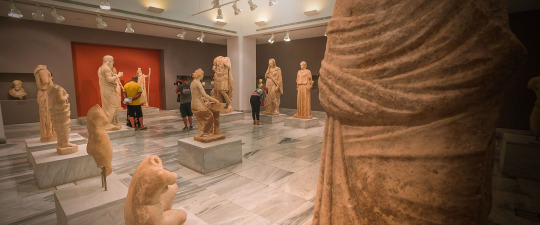
Most of the archeology museums in Turkey have been modernized and modernized in the last decade, but not the Konya museum. This is an old and dusty place with poor lighting and information panels that can also be obsolete. But don't let that put you off, because the collection is excellent (and if you like these relic museums with their treasure-seeking atmosphere, go now before you get your much-needed face wash). There is a complete sample of findings from the nearby archaeological site of Çatalhöyük and a wonderful collection of intricately decorated Roman sarcophagi.
Right at the end of the road is the Konya Museum of Ethnography, which has a complete collection of Turkish crafts, costumes, jewelry, carpets and household items, but unfortunately it looks a bit dusty and loveless.
Alaeddin Tepe
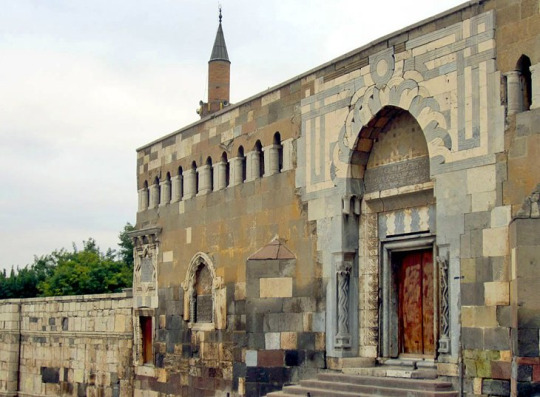
Built on the site of the ancient citadel of Konya, this park, right in the city center, is where the inhabitants of Konya come to walk in the evening and sip tea in the gardens. At the foot of the slope of the hill are the excavation site of the palace of Alaeddin Kaykobad and the remains of the old city wall. At the top of the hill is the Alaeddin Camii, built in the 13th century. It was built as a mosque with columns according to the Arab design, with a wooden ceiling supported by 42 ancient columns.
Selimiye Mosque
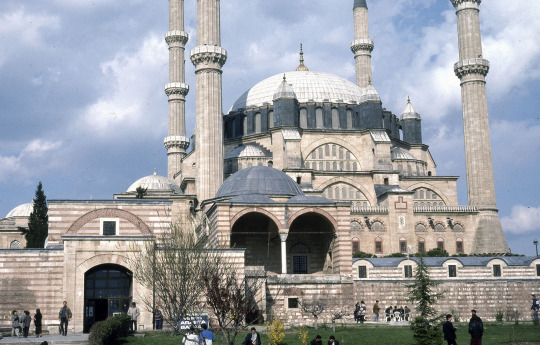
Standing on the square opposite the Mevlana museum, this immense dome-shaped mosque, commissioned by Sultan Selim II and built between 1566 and 1574, marked the height of the architecture of the Ottoman mosque. Head to the square in the early evening to take photos of the mosque and the Mevlana museum behind, lit up against the twilight sky. Across the main road from the square are a series of outdoor cafes and restaurants, which are a great place to sit and admire the view of minarets and domes while relaxing with coffee or tea.
Çatalhöyük
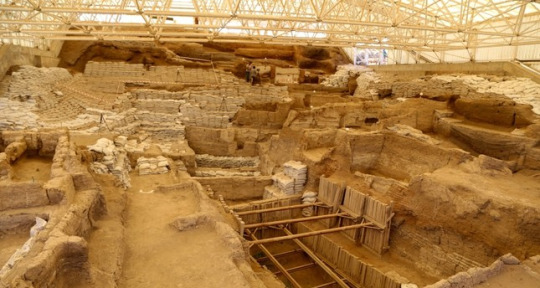
Although there are not huge amounts to see, the Çatalhöyük settlement mound is one of the most important excavation sites in the world. Here, archaeologists have discovered the largest Neolithic site ever found, with a colony dating from around 9,000 years ago. Excavations are in progress, and if you visit in the summer, you can sometimes observe archaeologists working on the site.
A magnificent small museum at the entrance explains the history of the excavations and the importance of the site. From there, a path leads you to the twin excavation areas (protected under domed shelters), where you can see the deep levels, with clear construction outlines, which have been discovered so far.
Sille
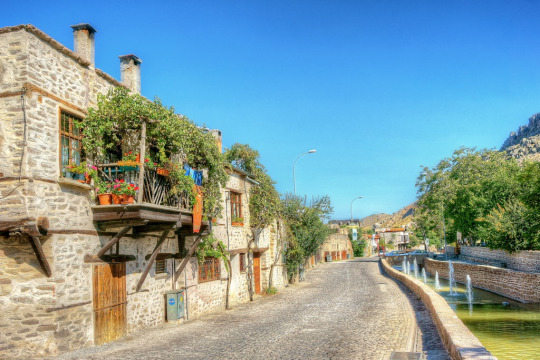
Nice as a button, the ancient Greek settlement of Sille is a small town on the outskirts of the city and a favorite destination for the locals of Konya. Here are two Byzantine churches: Saint Helena and Küçük Kilise, both recently restored.
The church of Santa Elena has an interior covered with colorful frescoes, while the small Küçük Kilise, on the hill behind the town, now functions as a museum dedicated to watches and other watches. The town's streets are lined with beautiful wooden beamed houses, while the cliff ridge is marked with old cave dwellings.
Aziziye Mosque
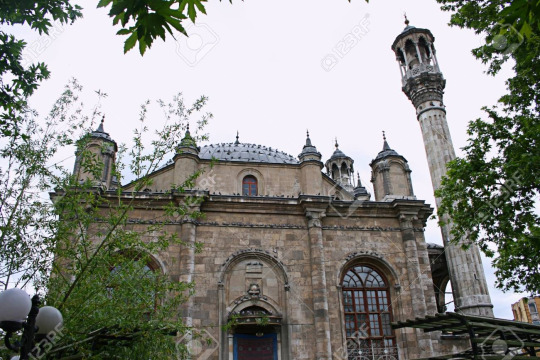
Within the bustling bazaar district of Konya, the Aziziye Mosque is ideal for fans of architecture. It was first built in 1676 by the Ottoman court advisor Mustafa Pasa and rebuilt again in 1867 after a fire. Due to this restoration of the 19th century, the architecture of the mosque is strongly inspired by the Baroque (the most fashionable style at that time), with twin minarets in Rococo style and a brightly painted interior with a rococo prayer niche. This very European decorative style makes an interesting contrast to the traditional design of the mosque.
Sahib-i Ata Külliyesi
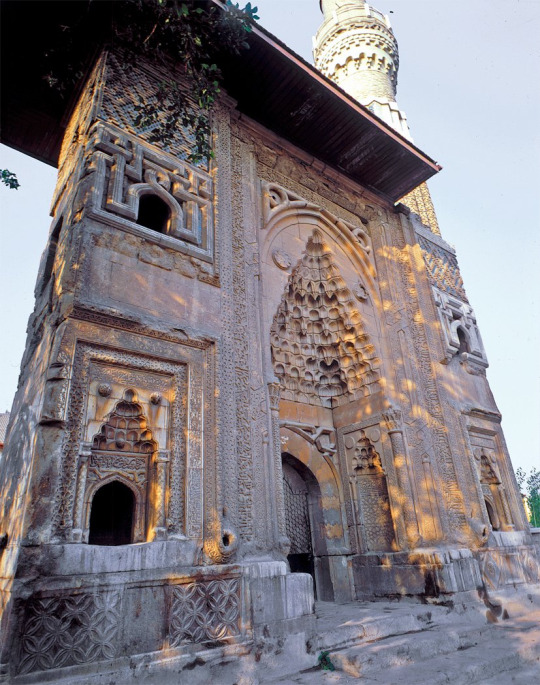
This religious complex comprises a mosque, dervish hut, türbe and baths and was built between 1258 and 1283. The door of the portal, grandly decorated, is beautifully decorated, and the interior of the mosque has a beautiful prayer niche of blue tiles. The dervish hut, with its beautifully restored interior of blue tiles and red bricks, has become a museum with an interesting collection of religious artifacts.
On the way to the mosque you will pass by Sirçali Medresi. Built in 1242, this ancient theological school has some beautiful (but crumbling) examples of tile decoration on its interior walls and an ornate stalactite portal. It houses a collection of Islamic gravestones, as well as some Hittite funeral urns.
Konya Mosques
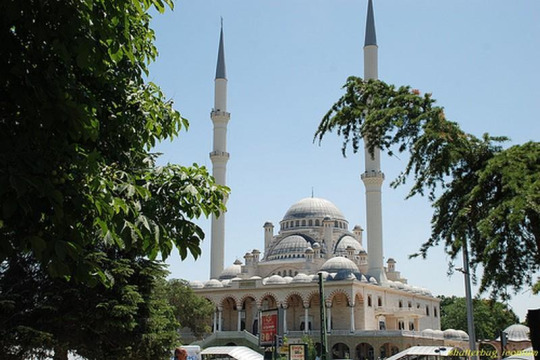
The central city is full of other well-preserved examples of religious architecture. In particular, do not miss the yarn manufacturers' mosque (Iplikçi Camii) on Alaeddin Caddesi. Only the mosque of this religious complex, built in 1201, which was to the east of the ancient citadel of Konya, remains.
The site was initially endowed with a family of manufacturers of threads, hence its name. The square building has two oval and one round domes, and stands on twelve enormous "elephant feet" columns, with a prayer niche richly decorated in marble. Mevlana and her father taught here.
The tower mosque in the bazaar is also worth a hunt. It was built in 1658, but after falling into disrepair was rebuilt in 1811. The roof of the eight-domed mosque is supported by 10 pillars, and a collection of 14th and 15th century clothing can be found in one room inside the building.
Related Articles:
Top Reasons Why Visiting Turkey In Winters Is A Great Idea!
Turkey Travel Guide
9 Things Not To Be Missed in Istanbul
Turkey Tour Packages from Pakistan
25 Most Stunning Landscapes Around The World That Fit Every Travelers List
Turkey Food and Visit Guid
#Konya Mosques#Sahib-i Ata Külliyesi#Aziziye Mosque#Sille#Çatalhöyük#Selimiye Mosque#Alaeddin Tepe#Archaeological Museum#Mevlana Museum
1 note
·
View note
Text
The Slap that Changed The World
All Muhammad Bouazizi wanted to do was to sell his fruits. But his stall was encroaching the premises of Municipal Office of Tunis. So a policewoman, Fedya Hamdi confronted him about it, and the ensuing argument turned ugly when the police woman slapped him and confiscated his produce. Humiliated, the fruit seller approached higher authorities to have his fruits returned. He was refused. Bouazizi turned hysterical and did something that he would never have thought would change everything.

Muhammad Bouazizi. (Image Courtesy: Wikipedia)
He set himself up on fire. And then, something happened.
Tunisia is surrounded by relatively poor countries, and is among the more prosperous ones. A relatively peaceful and stable, riots were rare. Of course, a despot as the head of the government for a long time came with a slew of problems that are typical of a despotic regime, but all was OK, until that act of self immolation by Muhammad Bouazizi.
Protests broke out, massive in nature. Rioting occurred in streets like never before. The populace rose up against Ben Ali, the president and all the detentions, executions, clampdown, curfew did little to stop the anger that had reached the point of no return. 28 days later Ben Ali fled to Saudi Arabia and after after a few adjustments archetypal of a violent revolution, democracy rushed through to its citizens.
So far so good.
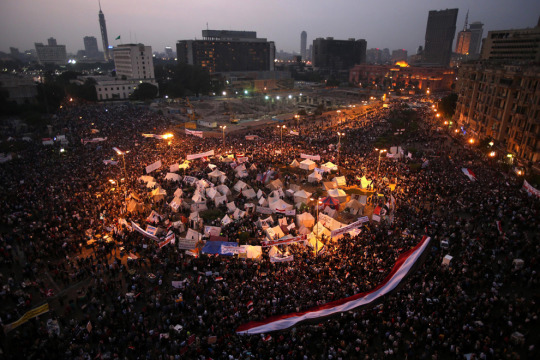
Tahrir Square (Image Courtesy: EPA)
The news reached the world almost immediately, through the social media. It also reached the Egyptian people, who came to a realisation that theirs was a situation remarkably familiar and similar. Protests broke out, fierce, and this time with a much greater coverage. This was probably the watershed moment for Facebook, when it truly transformed from a selfie sharing platform to a force so potent that Hosni Mubarak, the Egyptian strongman was slighted by it. For days end, the protesters sat at Tahrir Square, made new friends from people all over the world, sang the songs of a new era which they were sure of bringing, filmed the brutal acts Mubarak ordered his soldiers to commit towards his own citizens and shared it, and it seemed became one united entity against a brutal regime.
Hosni stepped down too, and the world romanticised the idea of a protester, a nobody with no money or power, could take on the entire system with their tanks and its missiles. The Time Magazine paid a magnificent tribute to this institution by proclaiming the protester as the ‘Person Of The Year’.
The revolution turned to Libya, where it turned a bit prolonged and ugly. Siege by the people, failure of outside intervention and a brutal conflict between rebels and Muammar Gaddafi’s forces protracted the war for a long time. The vacuum in governance it created created some extremist terrorist movements, many aligned with malicious organizations like the al-Qaeda. In the end, Gaddafi was deposed, dragged through the streets of Sirte, his birthplace, and shot. His body, along with that of his slain sympathizers’ was stored in a freezer at local market and put on display for days.

Gaddafi’s dead body being captured by a smartphone (Image Courtesy: AFP)
The wave, or the spring as it came to be described snaked northwards while all of this happened and reached Bahrain, Yemen, Saudi Arabia, Palestine, Iraq and Syria. It was quickly crushed in Saudi and Bahrain. The regime in Bahrain even went to the extent of razing down a landmark in the capital Manama, called Pearl Roundabout, because protesters were camping around it and the regime feared that the place would become the next Tahrir Square.
As an offshoot, the protests reached even to the countries like USA, India and China. In the latter, it was suppressed as soon as the watchdogs got the whiff of it. In 2011, taking a leaf from the book of their Arabian counterparts on raging against a despotic family dabbing into highly corrupt shenanigans, India decided to take Anti Corruption protests to a new heights and while there were no brutalities as seen in the Arab countries, the movement did change the political landscape of the nation significantly. In the US, the protesters took to the Wall Street to give the finger to the White Collar Mafia that robbed them (and continues to do so) of their wealth by gambling it off all the while filling their pockets.

Arvind Kejriwal during the protests. (Image Courtesy: AFP)
Parallely Vladimir Putin had just begun to flex his muscles. After his meddling in Georgia by sending troops to Abkhazia and South Ossetia Putin had evoked the ire of the Western world. Then he changed the constitution with the help of his lackey Dmitry Medvedev to give him longer term and more power. Then he (allegedly) rigged the general elections, which triggered mass protests and birthed Pussy Riot, but the former KGB agent merrily crushed it all. Then he went on a rampage to make life difficult for opposition, gays and of course journalists. Opponents were conveniently shot or poisoned. It all seemed to lead somewhere.

Pussy Riots, an all girl punk band was a chief Russian Icon of subversion (Image Courtesy:Wikipedia)
In 2014, the nation of Ukraine, a former Soviet territory which gave it one of its heads of the state, begin to boil after Viktor Yanukovych, the erstwhile president refused a closer integration with the EU. A massive pro-EU protests, dubbed the Euromaidan, forced Yanukovych out of Kiev and marked a big victory for the crowd. Until Vladimir Putin decided to take advantage of the situation of a country bitterly divided among pro-Russians and pro-Europeans and annexed Crimea. Since then, Russia has been actively involved in destabilising a pro-Russian Eastern Ukraine, where rebels continue to combat the government and have even accidentally downed a civilian aircraft.
Meanwhile, we return to Syria and Iraq, where the Arab spring turned into a blistering, hot, airless summer. The Bashar al-Assad government was the target of the rebels and the back and forth between rebel and government forces kept continuing. The entire nation was embroiled in a massive civil war, with government resorting to chemical weapons to kill off its own citizens, bombing hospitals and relief camps. Rebels, like in the case of Libya, began getting infiltrated by fundamentalist elements like al-Qaeda. In areas where government ceased to exist, a power vacuum grew.
And this vacuum was filled by a notorious Salafist terrorist organisation with an aim to create a caliphate. It called it itself Islamic State of Iraq and the Levant, of Syria, and eventually, just the Islamic State. They distinguished themselves by swanky modern videos with professional looks, an aesthetically designed propaganda magazine, and ruthless videos of beheadings and burning.Their first major victory came with the fall of Mosul in Iraq and they rapidly expanded in Syria and Iraq. Barbaric human rights violation alarmed the world, with incidents like killing, raping and pillaging non-Muslim dominated villages, public beheadings and brutalization of the innocents. Obama and friends were forced to step in after initial reluctance, with a sustained bombing campaign in Iraq. IS became the gravest threat to the stability in the region.
Worth mentioning is the red line that Assad crossed, that of chemical weapons. Obama had promised to intervene if Assad used chemical weapons, and Assad did. But Obama was of course wary of going to Middle-East, so he went to the Republican dominated congress, which promptly sent him back. Obama, weakened from a blow by the Republican party as a revenge for Affordable Care Act, then booked a deal with Putin, by which it was agreed that Assad will dismantle all his chemical weapon stock under supervision of OPCW, an organisation that later would go on to win Nobel Prize for its efforts in ridding Syria of huge stockpiles of deadly chemical weapons. It was of course agreed that any further attempts by Govt. forces to gas its people will not go unpunished.
Clearly it did not work.
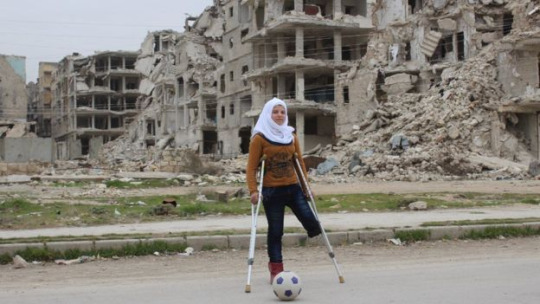
The human cost of Syrian Civil War (Image Courtesy: UNICEF)
Assad’s govt. found itself at a prospect of another rounds of sanctions after multiple instances of violations were found post the 2013 agreements, and this is when the proverbial shit began to hit the fan. Russia, which had been instrumental in getting the deal on chemical weapons passed started asserting that the chemical weapon was in fact used by the rebel forces and not the Assad regime, an assertion strongly rebutted by the US and the UN. Things got even messier when Russia annexed Crimea from Ukraine illegally in 2014. The entire Western Hemisphere imposed sanctions on Russia. Adding to Russia’s agony were falling oil prices. Cumulatively, Rouble was all but obliterated, and Putin was livid with the current situation. Media continued to get gagged, protestors and opposition continued to get killed, and Putin kept cultivating cult-of-personality persona a la Kims of the DPRK, and selling the dreams of return to the Soviet era superpowerdom. In 2015, Russia finally sent its air force to Syria at Assad’s request, and a beleaguered Assad found himself in a powerful position once again against a host of rebels, some backed by West, some affiliated to al-Qaeda and ISIS (or ISIL or IS or Daesh) itself.
While the superpowers were playing geopolitical soccer, the real cost of war started to pour in, as they somewhat inconveniently always do. The photos of Alan Kurdi’s body washing over to the beach; a gravely injured, muddied and bloodied Syrian kid with a vanquished look in his eyes; reports of boats capsizing in the Mediterranean; bombing of UN aid trucks, shelters and hospitals, the latter being the most cruel sign of absolute breakdown of humanity itself are all too fresh in the collective memory of the discerning half of the public. The rest, well, they had started to worry about the other problem that such strifes create: Refugees and Immigrants.
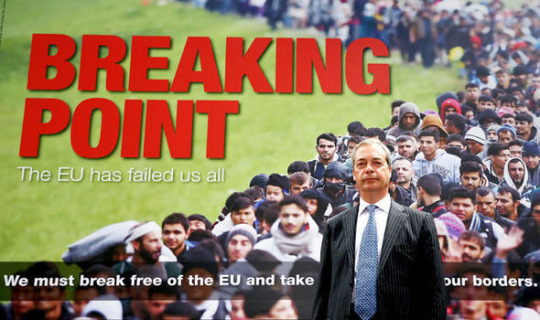
UKIP’s Leave Ad and Nigel Farage (Image Courtesy: Getty)
As refugees began pouring in Europe, cracks began to emerge. Conflicts among member states vis-a-vis accommodation of immigrants and refugees coupled with the never ending crowd of refugees pushing against the borders developed into a full blown crisis. Angela Merkel, the de facto leader of Europe and its most powerful leader became the refugee angel for persuading Europe to open its borders, accommodate more people and herself allowed thousands to get into Germany. Initially hailed by her compatriots as a hero, the mood soon soured when hundreds of reports of rapes and molestation emerged in Cologne, one of the key immigrant sanctuary cities. Paris was rocked with deadly terrorist attacks, at the Bataclan and later on at Nice. As refugees continued to pour in, the far right parties which until recently were considered toxically xenophobic started to gain traction among an otherwise highly liberal Europe. Geert Wilders of Netherlands, Alternative fur Deutschland from Germany, Beppe Grillo of Italy, Viktor Orban of Hungary, Norbert Hofer of Austria, and most prominently Marine Le Pen of France and Nigel Farage of UK cashed in on anti-immigrant sentiment, even fanning them when they needed fanning. The best solution these populists found for immigrant and terrorist problem (equal in their eyes) was to leave the European Union. They felt EU’s constricting bureaucracy and its rules meant loss of autonomy and loss of control over their borders.

Europe’s Far Right. Clockwise from Top Left: Norbert Hofer (Austria), Marine Le Pen (France), Beppe Grillo (Italy) and Geert Wilders (Netherlands). Image Courtesy: The Telegraph
Campaigning chiefly on the immigrants and islamophobia (because of course: immigrants = Terrorists = Muslims), Nigel Farage gained strong foothold for the ‘Leave’ vote. A vote (ill-conceived in hindsight) called by David Cameron to strengthen his pro-European position among his peers and opposition. He miscalculated, grossly. It did not help at all that opposition Jeremy Corbyn’s response was tepid and uninvolved, even though he voiced his support for EU.
In 2012, Greece as at the brink of bankruptcy. A solvency crisis fuelled by unchecked spending and corruption, Greece was on the verge of defaulting its massive loans to EU. If Greece failed to pay, then it would have had no other choice but to leave the EU. A Euro-hostile leftist government headed by arrogant and cocksure leaders did little to help the matters and mush to raise grave concerns over the fact that Greece leaving could mean a major blow to EU, that Greece leaving could create a domino effect that could blow up the Nobel Prize winning bloc and drown the world economy. Bankers and leaders scrambled day and night to come up with a deal and save Greece. They rejoiced, thinking that they had saved EU.
And then UK just exits. The British people vote ‘Leave’. David Cameron resigns. There is a Hindi saying: चींटी पकड़ ली, हाथी जाने दे दिया| Roughly, it translates to “Catching the ant while the Elephant slips away”.
Brexit, as it came to be fashionably known, sent shockwaves across the world. The biggest jolt to established world order and a shot in the arm to the fringe, the people of Britain took a decision that was widely characterized as dangerously reckless by experts all over the world. All of a sudden the world seemed to look unpredictable. Anything could happen.
And ‘anything’ did happen. The Islamophobia, the refugee crisis, and a general lack of charisma took the most unlikely anti-establishment character to the White House: Donald John Trump. The real estate reality star with his names on skyscrapers all across the world. Trump’s win mainly stemmed from a discontent among the working class with what they perceived as ‘elites’ ripping them off, demographic dilution due to immigration and its perceived effect on jobs, and from discontent among young democrats resulting abstention from voting. Also nudging the scales was intervention by the Russian Intelligence into the elections. Russian state-backed hackers allegedly stole emails from Democrats and Clintons and this leak followed Hillary to her political grave. Trump officials like Mike Flynn and Jeff Sessions were found to be communicating with Russian ambassador Sergei Kislyak and former has been fired. I will not write much about here because it is everywhere. No point in feeding from the same carcass, as John Oliver said.
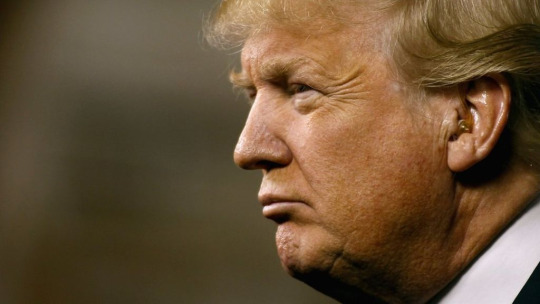
Divider-in-Chief
Russia continues its operation to this day. Not long ago, Syria decided to use the chemical weapons on civilians. Russia has once again denied the hand of Assad’s forces and blamed it on the rebels. The US was forced to attack a Syrian defence base, where some russian soldiers were also stationed. The relations between Russia and US, once again become frosty. The on again off again relationship continues like a bad soap opera. North Korea’s craziness is now taller than their tall Bond-Villain-Lairesque hotel, and Seoul still remains the world city that can be decimated by a military hardened from punching trees on its way southwards, a ballistic missile that reaches Alaska and a leadership known for its unpredictability. UK has never been in a worse shape, with increasing terror attacks and decreasing confidence in the government. At least Theresa May can thank her stars that her long, hard political career didn’t come to a point where she lost to a candidate with a bucket on his head. Hillary Clinton unfortunately doesn’t have that privilege. The one heartening development amidst the West’s slide to the far-right was election of Emmanuel Macron and defeat of ‘French Trump’, Marine Le Pen. Macron has been hailed as a manna from heaven for Europe, and the indications are that he indeed is.
All Bouazizi wanted to do was sell fruits.
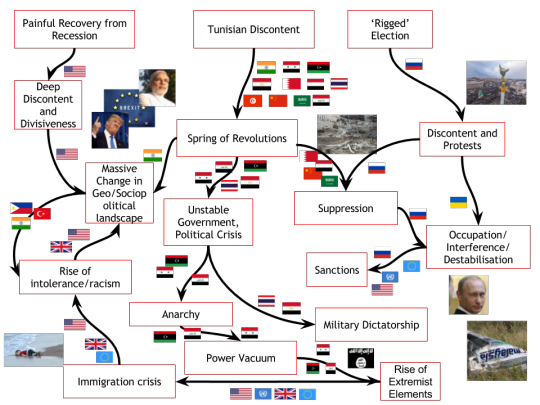
A TL;DR Info-graphic of the politics of this decade. Images that are not flags shown (Clockwise from top right): Euromaidan protests in Kiev, Vladimir Putin, MH17 debris, Alan Kurdi, Donald Trump, Brexit, Narendra Modi, Destruction of Pearl Square, Manama)
Sincerely,
Captain Not So Obvious
Source: As the article is quite exhaustive, I didn’t bother to cite a lot of sources. All information is taken from major Newspapers, Websites, and non-dodgy Wikipedia pages. Readers are welcome to verify the facts, and especially to point out any inadvertent inaccuracies.
4 notes
·
View notes
Photo
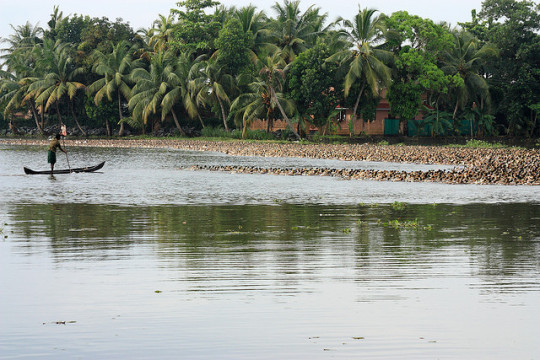
Places to visit in Kerala
“To travel is to live”- Hans Christian Andersen.
Travel provides us with a much-needed relief breaking the monotony of everyday life. For many, travelling means relaxation, for thrill seekers it is an adventure and for many it is like an addiction, hard to let go.
Nowadays the word travelling only signifies travelling abroad. Our own country, India has so much to offer that we might require an entire life to explore it properly. The state Kerala, on India’s Malabar Coast, is one such gem. Kerala is referred to as ‘God’s Own County’, which leaves tourists in awe with its incredible natural beauty.
A trip to Kerala will surely make you realise how underrated this place is. Backwater, hill station, wildlife, it has a lot of variety to offer, giving you more than just a single reason to visit Kerala.
Before heading out chalk out a proper plan; do some background research about the places you want to visit beforehand. Otherwise, you might just skip the most attractive ones!
Here is a list of places to see in Kerala which are a must visit. Have a quick look at it, thank us later!
· Munnar:
One of the most popular places to visit in Kerala, this well-known tea estate is a hot favourite among travellers. Munnar has the fame of being a commercial centre for some largest tea estates. This gorgeous hill station on the Western Ghat Mountain range is also called the “Kashmir of South India”.
Over the years it has become a must visit place in Kerala for the newlywed honeymoon couples. This place is also home for some very rarely found flora and fauna. Tata Museum, Blossom Park, Kundala Lake, Attukal Waterfalls are some other great attractions. The soothing weather makes your stay here a pleasant one.
· Alleppey:
This place has so much to offer you that even the destination abroad will look lame before it. Alleppey or Alappuzha is ready to mesmerise you with a houseboat trip along the rustic Kerala backwaters.
This oldest planned city is highlighted for having the glory of being the ‘cleanest town of India’. The backwater makes Alappuzha a celebrated tourist spot. Even the Kerala tourism department is leaving no stones unturned in promoting this lovely place. The place also has some historical value, being the centre of Punnapra-Vayalar uprising. For attracting the tourists’ attention it arranges competitive boat racing for amusement. Keep Alleppey in your bucket list priorities.
· Wayanad:
In today’s time when eyes long for a piece of green land, places like Wayanad is there to our rescue. A district in the north-east of Kerala is a piece of heavenly sight. This newly found district is mostly covered in forest, thus having a tranquil atmosphere. Covered in greenery, the environment here is enchanting.
Wayanad is home for many tribal communities. This place offers you many adventure sports and trekking opportunities which are enough to hypnotise the adventure freaks. The rainy seasons are a great time to enjoy the serene nature. The cool and comfortable weather gives you one more reason to visit this place in Kerala.
· Kovalam:
Apart from offering you all the fun, this beach town has another major advantage. This tourists’ paradise has the advantage of being located in the metropolitan area. Thus it provides smooth connectivity.
This small convenient spot has three beaches- Lighthouse beach, Hawah beach Samudra beach. If you enjoy long walks along the beach side in the evening, this place is just for you. Enjoy your time out from the busy schedule, take a dip or go for swimming in the shallow water. Kovalam has a huge National as well as an International fan base. It was most popular in the hippy era. Many find the presence of black sand on the beach of Kovalam interesting.
· Kumarakom:
Another wonderful God’s creation, Kumarakom is located near the city of Kottayam. This is another hub of backwater tourism. Other than having mesmerizing scenery, the place is also noted for its bird sanctuaries.
Congenial weather throughout the year ensures this is a must visit place in Kerala for tourists. Luxury resorts, boat racing are some of the highlights of this place.
· Bekal:
The beautiful beach surrounding the fort, water sports are some of the major attractions of this small town in Kasaragod district. Bekal is enlisted in the list of top destinations. Just a few kilometres away from the National Highways, Bekal fort is one of the largest and most well maintained.
Bordered by a beach, the tall towers of the Bekal fort offers a breathtaking view of the Arabian Sea. This giant keyhole shaped fort has historical significance too.
· Thrissur:
This particular city in Kerala is rich in cultural and traditional values. Thrissur is also known as the ‘Cultural capital of Kerala’. Do not miss this religious and spiritual junction in your trip to Kerala. Spread over a considerably vast area, Thrissur is popular for the cultural event, Thrissur Pooram. This colourful festival is a sight to behold. The festival is marked by live music, fireworks, processions, etc.
This city of spectacular temples has been a centre of Hindu Scholarship. Other religions such as Islam, Christianity, and Judaism has entered Indian subcontinent through this district. The diversity of this city attracts people. An overnight houseboat tour of this beautiful region is something to look forward to.
Other than these places, some more honourable mentions are Thekkady, Vagamon, Varkala, Kannur, Munroe Island, and Poovar among others.
Named as one of the ‘ten Paradises’ of the world by National Geographic Traveler, Kerala was quite an unpopular and unexplored location till the early 1980s. With the rapid initiative taken up by Kerala tourism, Kerala has become a well-appreciated name among tourists. The developing tourism industry contributes a lot to the state's economy. Now the popularity of its beaches, backwater, sanctuaries, and hill stations, is spreading among foreign tourists as well. Owning to the campaigns and word of mouth, the fame of the state is sure to be increased worldwide.
0 notes
Text
The Cafe which was Muslim Free
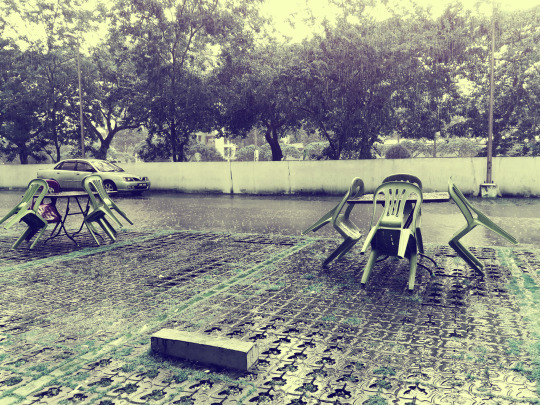
(the city of Nashville in this story doesn’t refer to the US town, neither the country where the story is happening is America. When I began to write, Nashville, as the name of the city, came itself to me. I thought I would change it later - I did not. I decided to keep it. Merry Christmas.
Asif Tamoso, 25 December 2018)
The cafe was full of life. Life, what US scientists were searching for, in the space. In other planets. The cafe had it all. Because the cafe did not have Muslims.
It was a Muslim free cafe, first of its kind, located in the heart of Nashville city. The city with a background story of a long-forgotten crusade, which shaped its folklore, elegies and poetry, once upon a time .
The citizens were relieved when they found a cafe where no Muslim were allowed. This is what each of them were waiting for, when their sleep of night was disturbed with woes and worries - when Muslims started to immigrate to Nashville.
The color of the city changed from blue and green and orange and yellow and silver to pitch black, in a matter of days. In such a short notice. All the sparkles were lost.
Somebody felt the responsibility to provide some relief for these good people of the town. To cheer them up. That somebody, was Mister Rogers Peterson, a lifelong bachelor who dedicated his life to the art of cooking. His life was nothing but soup and porridge, and the scent of freshly steamed rice. That was all he knew about.
He was a man who was cooking happiness for the entire city, from a long period of time. He knew how to bring pleasure to the taste bud. He knew it too perfectly.
So, when the town was unhappy, he could not stand it.
Not a lot of Muslims have came to the city. Only a few. Whatever the number of this new arrival, it was enough. The city could hardly bear a single Muslim.
This is when the people of the town noticed they were growing old, and things were bound to change.
Mr Thomas stopped playing his piano for a few days, in case the Muslims complain. He could not trust them. Mr Henry removed his antiques from display on his store's window. He did not want to offend the Muslims with miniatures of Goddess Sekhmet. And he definitely did not want his store to be vandalized. Mr Phillipe covered the adult magazines with newspapers in his news booth, he did not want the angry Muslims to pull his collar and ask explanation for public nudity.
Even the young lovers of the town were now scared to go to a dating or meet in parks. They were always feeling like a Muslim is watching. The feeling was uncomfortable, and sometimes, repulsive. They wanted to protest. They wanted to cry against this sudden disorder of things. But they could not help it. They were powerless. They felt like somebody hijacked them all, and they are now being held hostage in a plane. Somebody, took away all their freedom.
The city began to feel like a prison. Everybody has to watch their back all the time, because nobody knows when the Muslims will come.
However, the Muslims were busy in a construction site, making a new building. They lived together in a cottage meant for the workers. They hardly came out, except when they needed food. Then one or two Muslims were seen on the road, with a bag or a basket, asking people for the farmer's market. To buy some vegetables.
But the way they said 'As-salam-alaykom' instead of 'Good Morning', between and among themselves when not with everybody else in the world, gave people jump scares. This was a phrase they had only heard in the radio or TV earlier. Now the horror was right in front of them.
More scary was the Prayer Call, 'Allahu-Akber Allahu-Akber', which sounded like gibberish at the beginning. Then everybody had to listen to it day and night. Sometimes, three times a day, sometimes, five. If they were unfortunate enough to live somewhere around that construction site.
Things were running down. Things were getting worse day by day. Everybody could feel it. Everybody could see it. Though few wanted to talk about it. Because even walls have ears. And nobody wanted the walls to listen, even to their thoughts.
Never in history the city was struck with a tragedy like this. A tragedy on a large scale, affecting everybody. The Nashville before the Muslims came and the Nashville after - was obviously not the same.
The politicians and the city council refused to help. Because they were just not sure how to. They did not want things to get to the media. They were trying to turn the whole city into a hideout from the whole world. As if Nashville did not exist. As if Nashville was never there.
What could they say, after all, if the reporters asked them what is the reason behind all this suffering! Muslims? That would brand them as 'Islamophobes'. More dangerous was the thought that it would probably make to the international press if they made an unwise remark about Muslims, and then Jihadists would not spare their city. That brave politician who would make such a remark and speak on behalf of people, would probably get killed. There was no doubt about it.
Nobody was ready for that. Nobody was ready for it all.
But the Muslims came anyway. And they disturbed the peace of Nashville, a city where life was sweet before.
Now the couples and lovers did not dare to kiss even in the darkness of the movie theaters. Kissing on the streets, as before, was out of question. Everybody had to take precautionary measurements. Everybody was worried. Everybody was sick.
A plague would have been better. An epidemic or something. But this!
Then Mr Rogers Peterson made a bold move. He decided to show some courage, and let those bastards know they were not a bunch of rats. He could no longer tolerate this Tom & Jerry situation between a few, a handful of Muslims and the old Christian Citizens of Nashville, the large majority population who were threatened by the presence of a small diaspora of an immigrant minority.
Mr Rogers Peterson opened a new cafe. He named it 'The Haram Heaven'. And when people saw it, they wept their tears, dribbling from their faces. It was the tears of joy. At last!
At last somebody came forward. At last somebody decided to save them. At last somebody cared. Somebody risked everything, to make everything right again.
Mr Rogers put a large signboard on the door of his cafe, which said, 'This cafe is a Muslim free zone, and free WiFi is available here'.
It was a joke. It sounded like Muslims did not have free WiFi, or probably, free wives. Their wives were not free. The Muslim wives, never came out in public. Nobody ever saw them. Nobody had a glance on their faces, nobody knew how they looked like. The city assumed they were practicing their Islamic veil.
But Mr Rogers was very serious about his 'Muslim free' statement. He wrote exactly what he meant, each word of it.
And it increased his respect in the eyes of the common people, who were suffering from insomnia from so long! This was their medicine. Their sleeping pill has finally arrived. Now they could go to sleep.
Mr Rogers himself became a celebrity overnight. People wanted to give him awards, the schools wanted to pay him their respects, thousands wanted to donate in his business. So, it didn't take very long to make his business grow. His cafe was the most popular of the town.
However, Mr Rogers declined those awards, humbly. There was this Morning Shine University which claimed Mr Rogers was theirs alumni. But Mr Rogers rejected the idea that Morning Shine University was his Alma Mater. He still received an envelope with a honorary degree certificate from Morning Shine anyway. He did not know what to do with it.
Over time, the craze went away, but the popularity of his cafe remained, exactly where it was at the beginning. Other cafes & restaurants felt jealous at him, because they were now suffering from a huge profit loss. Everybody flocked to 'The Haram Heaven'.
The walls of 'Haram Heaven' was decorated with pictures of victims of Islam.
The 9/11 incident was the subject of the largest painting of the north wall. The south wall had a long list of quotes from notable critics of Islam, like Ayan Hirsi Ali, Salman Rushdie, Taslima Nasreen, Maryam Namazie, Theo Van Gogh, Ali Sina etc.
The wall on the west side said, 'Islamophobia keeps Nashville tension free'. The eastern wall had a painting of Hijab, and it said, 'get ready for it'.
In the ceiling, where the fans were, Mr Rogers painted a graffiti. It said, ' Je Suis Charlie!'
This was the walls. The menu was even more extra-ordinary.
With each recipe, there were instructions how to use it in case of an emergency situation, which is, definitely a terrorist attack. Like throwing the hot soup right in the face of the terrorist, or using the forks to drill a hole in the body of the terrorist, as the last resort.
Each table had a pepper spray on it. The customers could use it on the eyes of their perpetrators if they attacked the cafe. This Kung fu style ideas of fighting terrorists did not sound very real, though. But it reminded everybody what Muslims were capable of doing, and what they could do - in self defense.
There were five news racks in five separate corners of the cafe. Each of them was full of clippings of news reports about latest terrorist attacks. Two book selves, containing inspirational books about fighting Muslims throughout history, were placed right beside the counter where the employees were taking the dirty dishes and trays in and out of the kitchen.
Mr Rogers hired seventeen policemen from Nashville Police Department to guard his cafe all the time. They were always there. It gave the people in the cafe a sense of safety.
And they were having fun. They were dancing in the cafe, hugging, kissing, liplocking - doing everything human beings are meant to do in their life, once they are born. And definitely, they were eating. The previous experience when the Muslims first came to Nashville was not very different from starving. Though nobody had to starve.
But this time, it felt like eating to heart's desire, the way they wanted to eat, the way they wanted to stab the meat with the fork and put it in their mouth, and the way they wanted to chew it. This time, every bite of it, literally was bringing pleasure. The real satisfaction.
And of course, they were drinking as well. The 'Haram Heaven' offered them everything in the world that is Haram, which included wine, bacon, frogs, falcon, gelatin, smokes, cigars, marijuana and even dog meat. The customers were specially encouraged to taste the dog meat, because the reputation of selling dog meat in the cafe would forever keep the Muslims at bay. Even the dog lovers didn't mind.
Everything was perfectly well. Absolutely wonderful, to be precise. The city got back its life.
Though everybody knew the day would come, everybody knew it in their heart, that this Cafe would not be spared - but they continued to denied it. They were enjoying what they had. This was all left in the city. Because the lifestyle of people had to undergo a change, and it did not return to normal. Or, what it was before. Not completely.
And the day came. Five months after opening the cafe. When a stranger, that is what the people of the city called him, came from some other city to visit his relatives in the town and noticed the cafe. Three days later, the word was out. That a cafe like this was in existence, in Nashville. It was in the newspapers, all of them with a national circulation. It was in the TV. It was in the radio. It was in the internet. It was everywhere.
The stranger came to the cafe, and despite the strict watch of the police guards, he managed to take selfies in every nook and corner of 'The Haram Heaven'. Those selfies were published with his face edited out and blurred, in the bloody media.
Next day, the city was on alert. The President himself sent Mr Rogers an urgent email, requesting to change the name of his cafe. A truckload of military was sent to guard the area. Check posts were placed on every entrance of Nashville, to prevent unwanted people from entering the city.
And in the capital, there was a protest against 'this kind of Islamophobia'. People in the press called Mr Rogers a racist. The very Christian people. A new cafe opened in response, which had a similar signboard in it's door, saying, 'This cafe is Racist free, and Arab foods are available here.'
Mr Rogers refused to change the name of his cafe. No matter how heavy the pressure was. He said it was his right as a citizen of this country and a resident of Nashville to name his cafe the way he wants it. Which brought further controversy. Further shaming.
But he stood firm, right where he was.
But now the cafe was less frequented. It was still popular, but not day and night, as it used to be. People only came in the evening, though they came in a large number. The way it was, in first five months.
However, the anxiety returned. Again a gloom was cast on the city. But here in Nashville, everybody was supporting Mr Rogers. Other than the Muslims, who barely knew how to speak in English. They had to use a dictionary while conversing with other people. Everybody prayed and hoped they would not get to know what was happening, that they would remain in the dark about all this situation. It was not known whether they came to know about what was happening or not, but no reactions were coming from their side, for the time being.
And everybody prayed for the death of that stranger. As soon as possible. He was responsible for all this. He was to blame for this mess.
Nobody in Nashville allowed the thought of blaming Mr Rogers in their mind. No, Mr Rogers was doing what everybody else wanted to do. The difference is, others did not have the courage.
Then, at 25th of May, seven days after the media blunder, the City Mayor intervened.
He arrived in his Toyota Century Royal limousine with his chauffeur and his personal bodyguards right on the cafe's door, and stepped out of it. His feet touched the soil. Everybody was surprised, and wowed, to describe it accurately.
'Look, the Mayor himself!'
'Mr Steven Cox!''Mr Cox is here!'
'The Mayor'!'Mr Mayor'!
'Oh look!'
Then the crowd stopped shouting. They tried to keep their manners and etiquette. But Mr Rogers already heard the noise. He came out to check what was happening, whether the terrorists were finally here.
Instead, he saw something else. He saw a man wearing a blue sun-glass with a group of people who looked like security guards with a thin string plugged in their ears which looked like earphones. He tried to recognize the face in the middle. The man who had a large grin on his face. Where did he see it before? He saw it somewhere, but who could it be? He could not remember.
Then somebody yelled from behind, 'Our Mayor, Mr Rogers'!
The Mayor of Nashville!
What on earth!
Mr Rogers was utterly dumbfounded for a moment.
Then he returned to his senses.
'Welcome Mr Mayor! What brings you here? Tell me what could I do for you!'
'Nothing much, really! I just wanted to taste a dessert in your cafe, whatever you have for me!'
'Sure! Of course, of course! What luck of mine!'
Mr Rogers was mixing up his words. He did not know himself what he was saying, or what to say exactly. He was in a state of shock and surprise, both.
Now he remembered where he saw Steven Cox. In the papers. In the websites as well. How could he forget? Drat!
But his words began to make sense in a couple of minutes. He rushed to the door and opened it. Then he wanted to fly to the counter to bring the menu, although that was not necessary. Everything was perfectly well. There was no apocalypse going on. There was no earthquake. But Mr Rogers was tremendously surprised, more than the e-mail from President.
Specially because Mr Rogers have never encountered such big people before, face to face. What is the protocol? He did not know what to do, but he tried his best.
There was a biggie in his restaurant. There was his chance to snap a picture with him, and hang it on the wall. If he allows, of course.
In the next few minutes, Mr Rogers figured out the reason behind this surprise visit. Sort of. The reporters were not here. The photographers were not hunting him down. Only the people. His employees. And Mr Rogers himself.
The bodyguards took a table of their own, at the second floor. Mr Cox chose a different table, beside the window. There was a landscape visible from there, through the glass. Which looked down on the street. His limousine was parked inside the garage underground. People on the road could not see it. For now, there was no reason people could trace him here, unless somebody calls the press.
Mr Cox and Mr Rogers both assumed people here don't know the number of the press. Besides, the excitement did not last more than fifteen minutes. Everything was as usual now. A few employees, interested to have a glance at the Mayor's face, were peeking through the peephole of the kitchen door. That was all.
'Mr Cox, you remind me of this Islamic Khalifa, his name was Umar or something, he used to give surprise visits to his people. I have studied a lot about it, hence I know.'
The Mayor burst out in laughter.
'Do I look like an Islamic Khalifa to you?'
'Definitely not. You look like the Mayor of Nashville to me.'
'Thank Goodness! I thought I lost my face, and have to see the doc for plastic surgery to restore it. Nice to know I still look like myself.'
'Oh, you do! You perfectly look like Mr Cox. And I don't think you're an imposter'.
The laughing continued for a while. Then the Mayor asked for the menu.
He chose white wine with Pork Salad. This was his favorite breakfast, although it was afternoon.
Mr Rogers ordered all the chefs in the kitchen to get the Pork Salad to the table in two minutes. And so was done. The wine was served in a silver chalice, which was kept in the kitchen self for special occasions.
Mr Cox began to eat. And a clapping sound was heard from the kitchen. Some idiot was clapping his hands.
The Mayor did not give a damn about it. He asked a question instead.
- 'So, tell me Mr Rogers, have you seen anybody around your cafe with a knife or dagger recently?'
- 'Is there somebody like that?'
- 'I don't know for sure. I'm just asking. There is no reason to feel concerned right now, as far as our report goes.'
Mr Rogers did not know the mayor was keeping reports on his cafe. That was yet another surprise.
- 'You mean, the reports in your police department?'
- 'Yes.'
- 'I'm thankful you are keeping things on check.'
- 'I have to. This is my city. It's my duty to look after the citizens. Let me tell you one thing, my first concern is the safety of people here in Nashville. And I won't let nobody mess with it.'
- 'Oh, I know Mr Cox, I know!'
- 'If somebody tries to do a freaking shit, he will pay a heavy price for that. I assure you. This is Nashville.'
- 'Yes, I know. If some Muslims...'
- 'Yes. If some Muslims.'
Both hated the M-word. And they both knew it.
Why shouldn't they? Should they love Muslims? Is there a reason to love them? Those freaking creatures?
Bunch of ultra-religious freaks! All they want is to make everybody in the world surrender to their Allah. If you don't surrender, you know what then...
Shit!
They both wished Muslims weren't here. They both wished they could still go to Middle East. The whole Arabia is waiting for them. One thousand and one Arabian nights.
But these people, they are like leeches. They suck your blood. And they don't like it in Saudi, because they can't fuck around. Here in Nashville, sex is free, unlike their goddamn Holy Saudi Arabia!
These people, once they are here, stays here. They don't go. They don't leave. They don't exit.
Because, the Haram is indeed the heaven. And the Halal is hell.
Mr Cox finished his Pork Salad by now. The plate was empty. It was bearing the witness that somebody ate this Haram food served on it. That was impossible in Holy Islamic lands.
The wine chalice was still sparkling. Mr Cox took a few sips while he was eating. Now the plate was taken away, and he took the glass in his hand.
He poured down the wine in his throat. Cheers!
'Cheers to Haram Heaven, Mr Rogers! I make this toast for you.'
'Cheers to Haram Heaven, Mr Cox!' The words were repeated by Mr Rogers.
Should he give him some more? This was the finest wine in his stock. He should have had something better. A Vodka, perhaps? Or a real old Rum?
'Here is my card, Mr Rogers!' His thoughts were interrupted.
'Do call me whenever you need me. I am always there for you. You don't know what a great favor you have done to humanity by opening this restaurant. Humanity needed this. Humanity needs Haram.'
Mr Rogers couldn't agree more.
'I felt like I should do this. I should give people some hope. That hope is still there. Everything is not gone. That is why I started this cafe.'
'And Mr Rogers, if you don't mind - I want to make some donations for Haram Heaven. Personally. It won't make to the papers. If you accept...'
'Oh Mr Cox, that's so kind of you...'
'This is nothing about kindness, Mr Rogers! This is a symbol of gratitude for what you have done for the city. This is thanksgiving. For everything you have done, everything you have went through. I know you went through a lot.'
'Oh, I didn't mind. I could go through even more for what I consider is right. I knew what I was doing was the right thing to do in my conscious, and I did it.'
'And the entire city is grateful for that.'
The thirty-three minutes affair ended at this point. The Mayor now had to go back to his office.
This was the heart of Nashville. The center of the city. The afternoon was happening here. In the 'Haram Heaven'.
The Mayor gave Mr Rogers a blank cheque. To put on an amount as he wished. And then the man left, in his limousine.
Mr Rogers too, went back to his kitchen. The evening came, as it comes. The people came. Mr Rogers forgot to snap a picture with the Mayor. He didn't mind. He had the cheque. With Steven Cox signed on it.
He wrote $250 on it. That was the price of the White Wine and Pork Salad combined together, not more than that.
He got busy with his work, as usual.
On the streets, the chauffeur was still driving the limousine. The Mayor did not go back to his office. He went somewhere else instead.
It was the construction site. Where those Muslims lived.
He went to see the Muslims.
This part of the city has become empty a bit. Everybody left. Those who couldn't, are still planning to move somewhere else. Basically, it looks like the Arabian desert now.
This time, one of his bodyguards began to speak. He was the interpreter. He knew Arabic. The Mayor didn't.
It was not hard to find the Muslims. They were sleeping in the cottage, like hens in a cage. In a poultry farm or something. Mr Cox could see the resemblance. Very clearly.
He had something else in his mind. This was his chance. To boost his popularity. He was doing nothing wrong, he knew. He was doing the same thing that Rogers did. Without making a bloody signboard out of it.
His bodyguards were not the police. However, they were carrying a handcuff. They took out one of the Muslims and put it on his hands.
- 'What's your name, kiddo?'
Asked the guard with the cuffs.
The Muslim man didn't understand what the question was.
- 'Name! Name!'
- 'Ibrahim!'
- 'Well Abreyhim, you are now in our custody.'
Although the limousine did not look like a police van, Ibrahim was forced to get into it. Then the car started.
It stopped at Mayor's residence. It was already midnight.
It took the rest of the night to make Ibrahim understand why was he required here and what was he supposed to do. The dawn broke.
Ibrahim couldn't believe it himself. But the man spoke to him in Arabic. He said there was a restaurant in Nashville which was selling Haram foods, not only that, it was mobilizing people to launch an attack on Muslims. All of them in their poultry farm. All the hens were about to be slaughtered. And the Mayor felt it was his duty to prevent this attack and to teach those Islamophobes a good lesson. He was even planning to convert to Islam, secretly. But he couldn't tell it to the world.
Ibrahim was to kill them all. Everybody in the cafe.
He couldn't do that. Although he was dressed like a Nashville citizen, although his pistol was loaded with bullets, although he was forced to memorize all those things in English he was to say.
He managed to fire a shot at Mr Rogers, by the way. Then he was shot down. By the security guards of the 'Haram Heaven'.
It happened the next morning. All hell broke loose. The screaming was probably heard from the Mayor's office as well. The whole Nashville screamed.
Mr Rogers was spot dead. Ibrahim was taken to the hospital. The police wanted him to survive, so that he can deliver them the necessary information about which terrorist organization he was working for and where else they planned to attack.
Ibrahim couldn't give them those valuable info. An oxygen mask was put on his mouth. His body trembled for a while, till it was removed.
The doctors declared him dead. Before he could be interrogated, his soul left his body. Probably to the Islamic heaven this time.
The Mayor condemned the attack. He ordered an eviction. The Muslims were evicted from their cottage in the construction site. They were to be sent in jail.
A candle light vigil was organized in the memory of Rogers Peterson. The vigil traveled the whole city, and went to the capital afterwards. The President himself expressed his condolences, though Mr Rogers did not have a wife. His funeral was attended by his aunt, an old lady who was about to die within a few days herself. She knew nothing about it. She had no idea.
The media who was speaking of Mr Rogers in harsh tone before has mellowed down now. He was the hero of Nashville at the moment. Not just Nashville, he was the hero of the entire nation.
But the President ordered the national security to be tightened. He was fearing another terrorist attack. Just like this. The fact is, everybody was fearing the same.
The cafe had to close down. Finally. It couldn't continue its business. Nobody was there to look after it.
Nobody wanted to die, in the hands of Muslim terrorists. They refused to die. They would fight back, they said. They would force out the terrorists from this country, they would catch them all, wherever they could find them.
Things were almost at the verge of a civil war. However, the war did not start. The President had only a few months left in his term. And the Mayor of Nashville, Steven Cox - was running for his post this time.
After all, he was the one who caught those terrorists and took them to the court. They were sentenced to life imprisonment, the attorneys were working to make the jail time even longer. Because they deserved to die and get buried in jail.
Eighteen Muslims, altogether. They were associated with Jaish-e-Muhammed and the fund was coming from Turkey. They were using the camouflage of construction workers to operate in this country. They chose Nashville as it was the best place to further their agenda. The cafe was the perfect target to anger the whole Middle East and inspire them to wage a holy religious war on this country.
This was what the National Security Department had found out about them.
The investigation did not stop. It was continuously going on. On and on. Because if they were to save this country, they had to trace down all the terrorists. Otherwise, nobody was safe.
Mr Roger's death sparked a global protest. It was not an internal business anymore. Even the Muslims protested, against Rogers Peterson and his filthy mind. The whole Middle East was celebrating the death of a man they never ever heard about in their life.
In that part of the world, Ibrahim has become the hero. Slogans were heard in the streets in a hundred Muslim languages, which basically said, 'We are all Ibrahim'. The savage Muslims even offered prayers to Allah, for the peace of his soul. In too many countries.
Jaish-e-Mohammed claimed the responsibility of the attack and issued a statement. They were hailing Ibrahim as well.
In the Christian nation where it happened, some conspiracy theorists were busy to figure out a way of shifting the blame to Mr Rogers himself, or the President. They said the President engineered and scripted the whole event himself, and Rogers was used as a pawn. But they were discarded, more or less.
But suddenly a Christian nation which was little known before took the central stage of the world. For a few days, of course. After that, everybody forgot about it. When things died down.
Mr Steven Cox was still smoking his Havana Cigar, in his office. This was the expensive kind. He started to smoke Cigars after getting the National Award, the leader of the year.
He took out this piece out of the packet at this morning. A melodious song was playing in his computer from then, in a repeat motion. It was afternoon already. The cigar was not burnt to the halfway yet. He could not finish smoking it.
Asif Tamoso
02 & 03 December, 2018
0 notes
Text
Raqqa’s dirty secret
By Quentin Sommerville and Riam Dalati, BBC, 14 November 2017
The BBC has uncovered details of a secret deal that let hundreds of IS fighters and their families escape from Raqqa, under the gaze of the US and British-led coalition and Kurdish-led forces who control the city.
Lorry driver Abu Fawzi thought it was going to be just another job.
He drives an 18-wheeler across some of the most dangerous territory in northern Syria. Bombed-out bridges, deep desert sand, even government forces and so-called Islamic State fighters don’t stand in the way of a delivery.
But this time, his load was to be human cargo. The Syrian Democratic Forces (SDF), an alliance of Kurdish and Arab fighters opposed to IS, wanted him to lead a convoy that would take hundreds of families displaced by fighting from the town of Tabqa on the Euphrates river to a camp further north.
The job would take six hours, maximum--or at least that’s what he was told.
But when he and his fellow drivers assembled their convoy early on 12 October, they realised they had been lied to.
Instead, it would take three days of hard driving, carrying a deadly cargo--hundreds of IS fighters, their families and tonnes of weapons and ammunition.
Abu Fawzi and dozens of other drivers were promised thousands of dollars for the task but it had to remain secret.
The deal to let IS fighters escape from Raqqa--de facto capital of their self-declared caliphate--had been arranged by local officials. It came after four months of fighting that left the city obliterated and almost devoid of people. It would spare lives and bring fighting to an end. The lives of the Arab, Kurdish and other fighters opposing IS would be spared.
But it also enabled many hundreds of IS fighters to escape from the city. At the time, neither the US and British-led coalition, nor the SDF, which it backs, wanted to admit their part.
Great pains were taken to hide it from the world. But the BBC has spoken to dozens of people who were either on the convoy, or observed it, and to the men who negotiated the deal.
In a greasy yard in Tabqa, underneath a date palm, three boys are busy at work rebuilding a lorry engine. They are covered in motor oil. Their hair, black and oily, stands on end.
Near them is a group of drivers. Abu Fawzi is at the centre, conspicuous in his bright red jacket. It matches the colour of his beloved 18-wheeler. He’s clearly the leader, quick to offer tea and cigarettes. At first he says he doesn’t want to speak but soon changes his mind.
He and the rest of the drivers are angry. It’s weeks since they risked their lives for a journey that ruined engines and broke axles but still they haven’t been paid. It was a journey to hell and back, he says.
“We were scared from the moment we entered Raqqa,” he says. “We were supposed to go in with the SDF, but we went alone. As soon as we entered, we saw IS fighters with their weapons and suicide belts on. They booby-trapped our trucks. If something were to go wrong in the deal, they would bomb the entire convoy. Even their children and women had suicide belts on.”
Publicly, the SDF said that only a few dozen fighters had been able to leave, all of them locals.
But one lorry driver tells us that isn’t true.
“We took out around 4,000 people including women and children--our vehicle and their vehicles combined. When we entered Raqqa, we thought there were 200 people to collect. In my vehicle alone, I took 112 people.”
Another driver says the convoy was six to seven kilometres long. It included almost 50 trucks, 13 buses and more than 100 of the Islamic State group’s own vehicles. IS fighters, their faces covered, sat defiantly on top of some of the vehicles.
Footage secretly filmed and passed to us shows lorries towing trailers crammed with armed men. Despite an agreement to take only personal weapons, IS fighters took everything they could carry. Ten trucks were loaded with weapons and ammunition.
The drivers point to a white truck being worked on in the corner of the yard. “Its axle was broken because of the weight of the ammo,” says Abu Fawzi.
This wasn’t so much an evacuation--it was the exodus of so-called Islamic State.
The SDF didn’t want the retreat from Raqqa to look like an escape to victory. No flags or banners would be allowed to be flown from the convoy as it left the city, the deal stipulated.
It was also understood that no foreigners would be allowed to leave Raqqa alive.
Back in May, US Defence Secretary James Mattis described the fight against IS as a war of “annihilation”. “Our intention is that the foreign fighters do not survive the fight to return home to north Africa, to Europe, to America, to Asia, to Africa. We are not going to allow them to do so,” he said on US television.
But foreign fighters--those not from Syria and Iraq--were also able to join the convoy, according to the drivers. One explains:
“There was a huge number of foreigners. France, Turkey, Azerbaijan, Pakistan, Yemen, Saudi, China, Tunisia, Egypt...”
In light of the BBC investigation, the coalition now admits the part it played in the deal. Some 250 IS fighters were allowed to leave Raqqa, with 3,500 of their family members.
“We didn’t want anyone to leave,” says Col Ryan Dillon, spokesman for Operation Inherent Resolve, the Western coalition against IS.
“But this goes to the heart of our strategy, ‘by, with and through’ local leaders on the ground. It comes down to Syrians--they are the ones fighting and dying, they get to make the decisions regarding operations,” he says.
While a Western officer was present for the negotiations, they didn’t take an “active part” in the discussions. Col Dillon maintains, though, that only four foreign fighters left and they are now in SDF custody.
As it left the city, the convoy would pass through the well-irrigated cotton and wheat fields north of Raqqa. Small villages gave way to desert. The convoy left the main road and took to tracks across the desert. The trucks found it hard going, but it was much harder for the men behind the wheel.
A friend of Abu Fawzi’s rolls up the sleeve of his tunic. Underneath, there are burns on his skin. “Look what they did here,” he says.
According to Abu Fawzi, there were three or four foreigners with each driver. They would beat him and call him names, such as “infidel”, or “pig”.
They might have been helping the fighters escape, but the Arab drivers were abused the entire route, they say. And threatened.
“They said, ‘Let us know when you rebuild Raqqa--we will come back,’” says Abu Fawzi. “They were defiant and didn’t care. They accused us of kicking them out of Raqqa.”
A female foreign fighter threatened him with her AK-47.
Shopkeeper Mahmoud doesn’t get intimidated by much.
It was about four in the afternoon when an SDF convoy drove through his town, Shanine, and everyone was told to go indoors.
“We were here and an SDF vehicle stopped by to say there was a truce agreement between them and IS,” he says. “They wanted us to clear the area.”
He is no fan of IS, but he couldn’t miss a business opportunity--even if some of the 4,000 surprise customers driving through his village were armed to the teeth.
A small bridge in the village created a bottleneck so the IS fighters got out and went shopping. After months of fighting and taking cover in bunkers, they were pale and hungry. They filed into his shop and, he says, they cleared his shelves.
“A one-eyed Tunisian fighter told me to fear God,” he says. “In a very calm voice, he asked why I had shaved. He said they would come back and enforce Sharia once again. I told him we have no problem with Sharia laws. We’re all Muslims.”
Instant noodles, biscuits and snacks--they bought everything they could get their hands on.
They left their weapons outside the shop. The only trouble he had was when three of the fighters spied some cigarettes--contraband in their eyes--and tore up the boxes.
“They didn’t appropriate anything, nothing at all,” he says.
“Only three of them went rogue. Other IS fighters even chastised them.”
He says IS paid for what they took.
“They hoovered up the shop. I got overwhelmed by their numbers. Many asked me for prices, but I couldn’t answer them because I was busy serving other people. So they left money for me on my desk without me asking.”
Despite the abuse they suffered, the lorry drivers agreed--when it came to money, IS settled its bills.
“IS may have been homicidal psychopaths, but they’re always correct with the money,” says Abu Fawzi with a smile.
North of the village, it’s a different landscape. A lonely tractor ploughs a field, sending a plume of dust and sand into the air that can be seen for miles. There are fewer villages, and it’s here that the convoy sought to disappear.
In Muhanad’s tiny village, people fled as the convoy approached, fearing for their homes--and their lives.
But suddenly, the vehicles turned right, leaving the main road for a desert track.
“Two Humvees were leading the convoy ahead,” says Muhanad. “They were organising it and wouldn’t let anyone pass them.”
As the convoy disappeared into the haze of the desert, Muhanad felt no immediate relief. Almost everyone we spoke to says IS threatened to return, its fighters running a finger across their throats as they passed by.
“We’ve been living in terror for the past four or five years,” says Muhanad.
It will take us a while to rid ourselves of that psychological fear. We feel that they may be coming back for us, or will send sleeper agents. We’re still not sure that they’ve gone for good.”
Along the route, many people we spoke to said they heard coalition aircraft, sometimes drones, following the convoy.
From the cab of his truck, Abu Fawzi watched as a coalition warplane flew overhead, dropping illumination flares, which lit up the convoy and the road ahead.
“When the last of the convoy were about to cross, a US jet flew very low and deployed flares to light up the area. IS fighters shat their pants.”
The coalition now confirms that while it did not have its personnel on the ground, it monitored the convoy from the air.
Past the last SDF checkpoint, inside IS territory--a village between Markada and Al-Souwar--Abu Fawzi reached his destination. His lorry was full of ammunition and IS fighters wanted it hidden.
When he finally made it back to safety, he was asked by the SDF where he’d dumped the goods.
“We showed them the location on the map and he marked it so uncle Trump can bomb it later,” he says.
Much is hidden beneath the rubble of Raqqa and the lies around this deal might easily have stayed buried there too.
The numbers leaving were much higher than local tribal elders admitted. At first the coalition refused to admit the extent of the deal.
The Kurdish-led Syrian Democratic Forces, somewhat improbably, continue to maintain that no deal was done.
And this may not even have been about freeing civilian hostages. As far as the coalition is concerned, there was no transfer of hostages from IS to coalition or SDF hands.
And despite coalition denials, dozens of foreign fighters, according to eyewitnesses, joined the exodus.
The deal to free IS was about maintaining good relations between the Kurds leading the fight and the Arab communities who surround them.
It was also about minimising casualties. IS was well dug in at the city’s hospital and stadium. Any effort to dislodge it head-on would have been bloody and prolonged.
Raqqa was effectively IS’s capital but it was also a cage--fighters were trapped there.
The deal to save Raqqa may have been worth it.
But it has also meant battle-hardened militants have spread across Syria and further afield--and many of them aren’t done fighting yet.
All names of the people featured in the report have been changed.
0 notes
Text
Interview (2005): Reggae Riddims and the Sound of London Grit (What Music Do I Listen To?)
By M.I.A.
IN 1986, 10-year-old Maya Arulpragasam and her family fled the civil
war in Sri Lanka and settled in England. She learned English about
the time she discovered another language: hip-hop, the perfect
vernacular for describing life as a refugee in a squalid housing
estate in South London. Now 28, she performs as M.I.A., for “Missing
in Acton,” a nod both to her London borough, Acton, and to the
guerrilla spirit of her lyrics. After releasing two singles, the
dancehall-inflected “Galang” and “Sunshowers,” last year, XL Records
will release M.I.A.’s much-anticipated first album, “Arular,” in
February. This week, she will play benefit shows at the Knitting
Factory’s Los Angeles (Feb. 3) and New York (Feb. 5) locations to
raise money for tsunami relief in Sri Lanka. Joel Topcik recently
spoke to Ms. Arulpragasam about what she’s listening to right now
and why.
‘Bad Gal Riddim’
“Dancehall producers come up with a new 'riddim,’ or beat track,
every week or so, and send it to different artists. Everybody does
their own version of the new beat, and it becomes a
compilation. 'Bad Gal Riddim’ (Madhouse Records) is the newest to
come out. It has a little bounce to it. 'Right There,’ by Spice and
Toi, is the most fun song I’ve heard all week. When dancehall got
big a couple years back, a lot of girls got pushed out. Now they’re
getting back into it. I’m not even sure it’s out yet - I heard it on
pirate radio, which is where I get most of my music. The pirate
D.J.’s are always six months ahead of everyone else.”
Ivy Queen
“I’m a big fan of Ivy Queen. She’s probably the biggest reggaeton
star. Reggaeton is the sound coming out of Puerto Rico that’s really
huge in America now. Dancehall is much more stripped down, but
reggaeton has a Caribbean sound - steel drums and different tempos.
Ivy Queen and the dancehall rapper Sasha did a Spanish reggaeton
remix of 'Dat Sexy Body’ (VP Records) that represents a kind of
unity between dancehall and reggaeton.”
Baile Funk
“This is where my mind has been recently. 'Baile funk’ ('funk ball’)
is basically Brazilian kids in the favelas (ghettos) going crazy,
screaming the dirtiest lyrics over Clash songs and electronic music
that sounds like Kraftwerk. They take Miami bass beats, really basic
drum loops, heavy bass - I can only describe it as 'booty music’ -
and produce something so fierce and angry that reflects the absolute
chaos around them. Diplo (half of the Philadelphia D.J.-duo
Hollertronix) put out 'Favela on Blast: Rio Baile Funk '04’
(available at , a compilation of the best ones
he found when he went to Brazil.”
Jim Jones, the Diplomats
“Jim Jones has so much charisma and more attitude than most rappers
put together. 'Crunk Muzik’ (from 'Diplomatic Immunity 2’ on Koch
Records), with Cam'ron and Juelz Santana, is the best song to come
out of the Diplomats crew. Such a powerful beat - and you can’t tell
what the chorus is, it’s like 32 bars long. Rappers are like Rod
Stewart now; they’re like a bunch of Liberaces with their gold rims.
The Diplomats are just a little bit off key from what others are
doing. They seem to be experimenting the most, and they have a real
fight mentality. It’s the guerilla side of hip-hop.”
Lethal Bizzle
“I love Lethal Bizzle’s 'Forward Riddim Remix’ of 'Pow!’
(Relentless). It’s a grime record that reflects the London streets
in the most aggressive way possible. People call grime the new punk -
electronic, minimal beats and mad bass lines. The remix makes
the 'pow!’ lyric from the original into the hook of the song, and it
has so much energy. There are like 20 M.C.’s from around London on
this track. It’s just wicked. I live in a place with Somali
refugees, Polish people, a lot of Arabic people, and this song is
blaring out of every single car. It’s what’s empowering them now.
It’s like when you first hear Public Enemy’s 'Fight the Power.’ It
makes you feel so good when you walk down the street listening to
it.”
Ce'Cile
“Ce'Cile hasn’t had a really big hit yet. But she’s strong and
consistent, and she’s not afraid to experiment. I thought it was
brave for her to work with the producer Jacques Lu Cont on 'Na Na Na
Na,’ from the 'Two Culture Clash’ CD (Wall of Sound). It most
reflects what I like in a sound. It’s minimal - just vocal and beat -
with a synth-y drum loop. There are almost no changes at all - when
the chorus comes in, Lu Cont just brings in an extra snare and
pitches it up and then back down again. It’s brilliant. It came out
after my first single, 'Galang,’ and it was good to know there was
something else out there for the kind of music I want to do. If
something like this could get on mainstream radio, it would be so
great.”
Are you lesbian?’ 'No, I’m making music.’
Here’s a little tip for the kids. If you’re going to be interviewing
Miss M.I.A., be sure to tell your editor you’re going to need at
least a half dozen pages to squeeze in all the good stuff. If your
editor finds this unreasonable, get a blog and just reprint
everything there. That way, everybody wins.
So. Today we talked to the delightful Maya Arulpragasam. The 800
word version of our encounter appears in tomorrow’s National Post.
If you’d rather just read a couple thousand of her words without
ours getting in the way, this post is for you. Laughs have been
edited out. But they were frequent. And wonderful.
This will be far too long. And, for the uninterested, boring.
Apologies.
On handling the hype:
Hopefully, you know, it’s not going to last forever. I must be the
only person who’s like, thank god this is going to end soon… When I
went to Germany I felt that. I went to Puerto Rico to do a show and
then I went to Philly and then New York. And I did that in about two
days. And then I had to fly to Hamburg and then Berlin. And it all
happened in about five days. Then I was like, `I physically can’t
handle it.’ I thought, I’m just going to disintegrate.
On the audience in Germany:
It’s not even like English. [But] Germans get it. And they’re really
into it and stuff. I was thinking, `Do they even know what my lyrics
are?’ But they kinda do. They just feel like it doesn’t even matter.
I get that impression from them. As long as it’s real. When I do
music I want to make sure that there’s [something] there for anyone
and everyone. So that’s fine that they only pick up on that. The
journalists pick up on the lyrics and stuff, but my cousins in
Germany call me up and they go, `You video’s on in Burger King.’ And
I know that whoever’s playing it is not really into the lyrics.
On the controversy with MTV:
I’m thinking still. I have to do it by today or tomorrow. It’s just,
I don’t know, I’m going to wait until they get bored of asking me.
Then I’ll tell them something. They’re going to play the video. And
they said that they’ll let everything slide as long as they have a
statement. Otherwise, they’ll have to cut sentences out of the song.
But I feel like I shouldn’t have to compromise at all. And they
should know that.
On her shoutout to the PLO:
I was thinking, the Wu-Tang Clan said it all the time � I’ve heard
it in Method Man songs. And no one even bats an eyelid. So why is it
more heavy when it comes from me? It’s kinda interesting. Because I
think the image � what I am and the body that I’m in � is totally
different to what Method Man looks like. And it’s probably more
scary coming from him than me. But, it’s amazing innit? Which is
what I want to show � I am the scary thing right now. It’s really
mad. It’s just kinda like, I wouldn’t really say it too much, but I
just kinda want to be there � offer myself to be there as whatever
it is, so people can learn it as it happens.
On her political lyrics:
Really, that’s not what I’m about. The things that I started
speaking up for weren’t necessarily, like, huge political subjects,
which is what it’s turned into it because my lyrics are taken at
such face value. But underneath I use political references or words
to reflect everything � whether you’re poor, whether you’re from the
street, whether you can’t pay the bills, whether you’re just the
underdog all the time. And I think those lyrics can be applied to
any of those things.
What I try to do is that it could appeal on any level. Sunshowers is
obviously about it. But why wouldn’t I write something like that?
You know what I mean? This acts like as an evil dividing the world
into good and evil, makes me fall into the evil � so, excuse me,
I’ve just spent 30 grand on my education, living in England and I’m
paying rent and surviving everyday like everybody else, I don’t need
the extra stigma attached to my bloody head. So of course I’m going
to write about it. It’s like becoming the new gangsta culture. You
know what I mean? We’ve heard rappers go on about it for so long and
they’re not stigmatized anymore � in fact they’re driving around in
Bentley’s. And, you know, my brother living in Wimbledon right now
gets his photo taken around to all the shops by the police,
going, `Do you know what this kid is up to? Because we seem him
everyday and he looks really dodgy.’ And my brother’s just some
random kid, totally exactly the same interests as any other average
23-year-old � into cars and girls and trying to survive and he’s got
a job. But because he looks slightly Muslim � because, you know, he
walks around wanting to make a statement too, I guess � the police
take his photo around the cornershops. And you just think, `That’s
amazing.’ That shit just never would have happened. When it’s
affecting a Sri Lankan family, then you think, `Man, imagine if
you’re an Islamic teenager growing up.’ That must be really intense.
The state of the world cont’d:
As soon as you start segragating people and making them into this
other, then they’ll feel it and then they’ll respond and become it.
Because human beings do pick up stuff like that. The general
atmosphere on the planet right now is this unknown bunch of people
are brewing and making bombs in the basement and it’s all going to
kick off. And we’re sort of creating it with the hysteria. So then
you have to get the other person’s opinions out there to balance
things out so they don’t feel shat on. You know what I mean?
That’s kind of what I was thinking at the time. I really felt like I
needed to know what I wanted to tell my kids � if being good was
striking twice as hard…
I was like, shit, I’m giving up on my life. I dunno what to tell
myself anymore. I’m so confused. So I was like, when I have a kid
I’m going to lay down some laws and teach it some stuff. My mum
brought me up going, `Ah Ghandi, he’s such a non-violent man. You
turn the other cheek, huh. If somebody hits you, you just turn the
other cheek, like Jesus Christ.’ So when people treat you bad, you
just think, that’s cool, that’s fine. That’s their judgment, that’s
their call. And you get on with it. And then now it seems like what
President Bush is teaching us is if somebody steps to you, you just
kill him. Don’t even ask any questions. Just take him out. He’s the
biggest bloody 50 Cent he is.
On where her music fits:
You know, I’ve never been one to… all my life, everything I’ve
been to or whatever I’ve done, it’s always been like that. I just
don’t think it will change for me. The journalists and the critics
are really good, but I’m still not accepted in a lot of genres
musically. And that’s kind of what really, really is the battle.
Getting people that understand it, is one thing. But getting people
within it to get it is really, really difficult. Music became really
segraegated and boxed and dutta, dutta, da… Then people started
creating within those boxes and they’ve found formulas that work and
they’re sticking to it like hell because it’s the livelihood for so
many people. And when you come up and when you question all that,
you’re not going to be seen as something great. I know that’s going
to be the battle for me. I don’t know, we’ll see. Cos I feel like my
career has just been upside down � like I’ve started at the top and
I have to trickle down to the chicken shop. Whereas most people
start selling at the chicken shop and work their way up to getting
recognized. Everything’s just been so weird that I don’t really know
what’s going on � where the hell my battle is, but I’m assuming it’s
down on the chicken shop because it’s the last place for me to get
to.
On her first stumbles into music:
I’m learning as I go along. When I started it was more like… I was
tone deaf, everybody knew it, even when mates sit around and sing-
along to songs, they’d get me to sit out of those games because they
were like, `We don’t recognize anything you hum.’ When Peaches and
Gonzales on tour and they said, `Have a go on the casio’… I used
to be really shy and stuff. It wasn’t like, `Yeah, let me have a go’
it was like, `No please, no don’t do this to me.’ And they were
like, `No, give me your finger and just press that button.’ And it
was so wrong… and I don’t know how it happened, it’s really weird
and it’s really freaky… but, yeah, I’m doing it. And I didn’t
really think. The first thing I thought is, `Oh my god, you make
noise and all you have to do is make come out at the right time over
the beat.’ Like, it was that simple for me.
Now I’m just getting to know the pitch and the melody, but before
when people used to go, `One, two, free, four’… I used to
go, `What are they counting?’ And I couldn’t even get my head around
the concept of a count-in and a bar. But that’s as far as I thought
about music. And the rest is just me trying to make sense of,
like…. me.
No. I just think I can’t really sing. And there’s a part of me that
will never aspire to be a proper singer doing record gymnastics. I
just hate that. And then, you know, sometimes I think I can rap,
sometimes I think I can’t. But however it comes out, it’s just, you
know… I don’t know… it’s really weird… I just can’t believe
that people like what I do. I can’t. So I don’t know what to say
about it.
I started learning that every kid I met who wanted to be a singer
and who wanted to be a musician � this is a huge generalized
statement, but… when I started writing the songs… I wrote M.I.A.
first and then I wrote Galang and I just had the lyrics and the
melody and then I wrote it over a beat… Initially I was like Look,
I’ve written these songs. I don’t have the confidence and I’ll never
do this because I have a real short attention span and I can’t
remember my lyrics and stuff. So I was like, `Is there anyway we
could find someone to sing these?’ So then for like two months that
was the journey that I had. My first step into music was finding
someone else to do it. And every girl I came across, if she was a
black girl she wanted to sound like Aretha Franklin and Beyonce. And
all the white girls they either wanted to sing proper indie stuff or
sing like, well, you know… And it’s kind of finding somebody that
was them in it was so difficult that in the end I just thought,
maybe there’s something in this. Maybe it’s just the act of being
confident with what you are. And that was quite an important thing
just for people to see. Because we’re losing it in music because
everything is becoming so generic. And even the kids that I know
that strive not to make generic music, in a mad way, make it.
On getting yourself an education:
Education is just so important. I think especially if you are the
other, then it’s always good for you to know what people think about
you. So you have to kind of learn the language. That’s what it is. I
think ultimately that’s kind of what made me end up in this position
is that because nobody really cared what I was, I got to learn what
they were. No matter what genre or community or whatever I went
through. When I was doing all the artwork for Elastica and hanging
out, I got to learn what their thing was. But they wouldn’t let me
play dancehall and hip-hop in their dressing room or anything like
that. Because it seemed like those kinda kids were really narrow-
minded, musically, they had their own encylcopedia of what you
should know if you’re in an indie band. But it didn’t go outside the
manual. And that’s what makes the stale music. Because everybody’s
got that manual. It’s that guerilla book of filmmaking, you know
what I mean? And 80 million people have it, it’s the number one best
seller � well, you’re not a guerilla anymore, are you? That’s kinda
the thing that I was thinking. Them being narrow-minded about what I
had to bring, made me learn. In terms of education, I went to an
institute. But you can get it anywhere. The point is, it’s just
important.
On that chicken shop thing:
Before it was the chicken shop, it used to be the nursing home for
your grandma. That’s what I told XL when I signed to them. `I want
to be played in the nursing home’… It’s not going to happen.
On boxes:
I don’t have to go in a box. And besides, I haven’t been boxed yet
and I got to like it. So they can’t box me now. I found my thing and
I’ve started the battle. And I have had people giving me a hard time
about it and the fact that at the time radio stations and record
shops � the fact that they even questioned what I was doing, I just
hope that they realize that they’re stomping out creativity and they
are totally part of that weird machinery. And I’m going to fight for
it now.
At every point there has been something that could have made me
compromise. But because � this is the only reason and the only thing
that my life has been good for is priming me against things like
that. I wouldn’t wish some of the shit upon anyone, but then you
just go, `Actually, why the hell am I going to back down to blah-
blah and blah-blah notion?’ It just doesn’t matter. Because none of
this shit really, really, really matters. Like all these boxes that
people put themselves in and how much they beat themselves up about
stuff and dutta, dutta, da � it doesn’t really matter to me. And
it’s like, in the beginning in England, the Indian radio stations
wouldn’t put Galang on because I didn’t have an Indian intro. And
they wanted me to re-record it and put a Hindi intro to it. And I
was like, `No, I’m not going to do that. Why would you even get me
to do that when the whole point is that I want to be someone on the
inside. It’s obvious why I am. It’s obvious I care about where I
came from. It’s obvious I’m fucking brown. I don’t have to say it
again and again, underline it and talk to the people within the
circle when it is about getting it out there. None of them are doing
anything that actually gets out and is confident. If they’re really
confident about what they’re doing, why don’t they go out? But they
don’t. And when you do, they just go, `Oh my gosh, she thinks it’s
white.’ That internal racism thing is bullshit because everybody
suffers by that kind of thinking. Which is why education is
important, it opens you up and makes you open minded. I want to be
part of that. If I’m going to be the one who’s going to be burnt at
the stake, I want to do it. I want to do it in public so everybody
can see exactly what our values on this planet today is. It just
needed someone brave. And I was just in a point in my life where I
had nothing. So I had nothing to lose. That’s kind of where I got my
confidence from. It wasn’t like I was going to lose my face, I
didn’t have one. It wasn’t like I was going to lose my money, I
didn’t have any.
On her visit to Toronto with Peaches:
It was really positive. Everybody was so encouraging. And I just
never felt that anywhere else. It felt like there was some new thing
happening, new blood that was just like `Fuck it! Everything
goes!’… It was interesting. It just seemed like things were
getting ripped to sheds and put back together in Canada more than
any other cities I went to.
And, finally, on her mum:
My mum was still getting me applications from the bank. `Mia, you’ve
got to get a job. This is too much. No one’s going to marry you.’
And then last month the Sri Lankan newspapers wrote about it and
they did like two big pages and they really embraced it and put, `We
have to support this girl.’ And then when my mum read that she rang
me and was like, `Oh, you’re actually doing something.’
Every year my mum learns one new English word and it opens up a
whole world. So last year she learnt the word, `lesbian.’ Because I
didn’t have a job and I wasn’t married, she got a phone call
saying, `Maybe your daughter’s a lesbian.’ So she learnt the word
and then she used it on me. And she was like, `Are you lesbian?’ And
I was like, `No, I’m making music. And things are really intense for
me right now. I just don’t want to take time out to marry this like
fat guy in Sri Lanka with a moustache just right about now.’ And
then this year, it’s been `underground.’ But she didn’t
know `underground,’ she thought it was `underworld.’ So she rang me
up and she was like, `My friends in church think you’re underworld,
now what is this?’ I was like, this is what happens when you sign to
XL.
Read more: http://mia.boards.net/thread/54/interviews-2005#ixzz4eBvmz5gL
0 notes
Text
Unfortunately, I am incapable of sleeping well on a plane, despite my recent habit of napping instead of actually sleeping these last few days. Fortunately, that leaves plenty of time to attempt a coherent blogging experience. I will continue with my descent into Kota Tua, but as Indonesia was my first visit to a developing country, I would like to first list the things I found the strangest/most interesting about Indonesian culture:
Fun facts about Indonesia
Tissues are an all-purpose material. They are used as napkins, paper towels, toilet paper, and facial tissues
Toilets are quite strange (as you know)
Lines on the street are largely ignored
I would not recommend driving
They snack all the time – huge fan
The people are not fans of walking everywhere (understandable,I also dislike melting)
There aren’t many crosswalks, so if you want to cross the street you place your palm out to your side so that the cars will stop
I like to exclaim “The Almighty Palm Raise!” while performing this activity
Works for the most part, but there are some people who do not care (learned this the hard way)
They wave your bags with metal detectors upon entering malls and tie your bags in supermarkets as a shoplifting precaution
This doesn’t really apply to foreigners or it could also be the face of eternal confusion I wore over the first few days
They love taking pictures of white people
Some Indonesians are too poor to be able to travel, so they enjoy taking photos with foreigners. Quite frequently I may add
No matter what you do, if you are light-skinned, you WILL stand out
They don’t use knives; you will customarily be served a spoon & fork
Everyone wears jackets and jeans despite it being 10 million degrees outside
The deodorant market must be wildly successful
The people are some of the most hospitable beings I’ve ever met
Primary religion is Islam so I’d reconsider wearing those spaghetti straps ladies
Their ginger beer and guava juice are amazing
Breakfast is normally meats and rice and veggies versus eggs and cereal
They are big fans of spicy food
*disclaimer: I am no Indonesian expert and speak based on my experience in the Java region.
Kota Tua and the night my phone ran away
Monday we were introduced to our groups and the topics we would be addressing in our joint studio workshop the next week and a half. However, before any research was to be done, we took a tour in the historic section – and poorer – of Jakarta and I will be honest, a lot of our tour was not pretty, but it is important to keep an open mind and put aside your Western way of thinking. I will also note that my outfit while cute and still fairly light and airy, did not save me from the real-world sauna session I was to soon experience. I don’t believe even Tarzan’s loin cloth would have provided him any relief from the heat – were he a) real and b) had a craving for Indonesian food.
Anyhow, after a train ride into the we arrived in an open square where after noticing a few boys staring at my unfortunately rather pale skin, experienced my first photo request. Assuming they wanted Iliana and I to take a photo of them, I became quote baffled when the boy didn’t hand us the phone and instead kept incessantly waving his hand. Thankfully, one of the Indonesian students pulled my incompetent self to the side and explained things to me while Iliana happily posed for her glamour shot. The group itself looked quite suspicious itself as we were a relatively large group of people consisting of Indonesians, Chinese, Americans, British, and a Colombian (our dear Iliana). We were essentially a beacon of nonconformity. Likely blinded by the abnormal amount of light skin in our group – I like to imagine some of us with lighter skin were sparkling in the sun like the vampires from Twilight – we were approached by the local tourist/government agency thing who ran tours of the Jakarta History Museum who invited us inside to give a brief presentation. The presentation was of course accompanied by cute snack boxes and then two of the guides joined our tour group, giving us easier access to certain areas of historic/public significance. We encountered many guards along our journey, and if my tired mind recalls correctly, they were there to protect certain public buildings from street vandalizers/hoodlums/whippersnappers or whatever term fits your fancy.
Two main things stood out on this tour: 1) the stark contrast in buildings and b) the trash. When looking at a panorama or simply walking throughout the city you could see skyscrapers, old Dutch colonial buildings, and “informal” buildings of the slums all in one glance. Don’t worry, the center of the city is quite nice, but this area was just as much an important, if not a more significant, face of the city. The most notable part of the tour was the trash. With a little imagination, one could see how the old part of the city was once dominated by a beautiful canal system, with streets bustling with goods coming in from the Harbor and far lands beyond. Today, sadly the water is full of trash, multiple mounds of trash forming walls to block the continuous flow of the river. There is so much trash in the water, there are even people who live on the trash. This would cause any person lucky enough to be born in a more developed part of the world take another look at their own lives and how many things we take for granted. Long our tour we also visited some Kampungs along the water’s edge. The community we visited was fairly separated from the main streets of the city and lined a slightly cleaner body of water (likely due to the community’s efforts) on a fairly wide street filled with people of all ages. There was a very basic ferry system allowing for transport across the river by a simple raft and rope connecting the two sides. I found the skill of the residents quite impressive. There had recently been a project where the community worked with UI to improve their streets by moving back their homes 5 feet (themselves) and paint some of their homes to create a more pleasant environment. Some people with my background may find the neighborhoods to have a poor quality of life, but I found these areas quite pleasant. The people obviously cared about one another and the lives they had quite literally built for themselves.
After much walking we ended the night in a nice restaurant on the street near the plaza. You can also get a tattoo on the quite non-sterile street if you prefer to live your life on the edge. Then came a long train ride home where many of us were trying to cope with the jet lag coma threatening to take over. You may be wondering if my phone had abandoned me yet, as pick pocketing is not that uncommon in the area we visited. However, my phone had not abandoned me yet. Unfortunately, this still means I do not have any pictures of my own from this day, but I did manage to snag a few from other’s phones and cameras:
This slideshow requires JavaScript.
The woman next to me on the plane is gradually nudging my arm off the rest so I will attempt to make the rest of this brief. Iliana and I went to the mall once again, since our suitcases were still being held hostage by the airline. It was upon our return home in a taxi that my phone left me for another. I had gotten out of the cab and had maybe walked ten steps when I realized I did not have my phone. I twirled myself around only to watch as the taxi drove off, too far to have a dramatic movie moment in which I would sprint and thrust myself onto the trunk of the taxi man’s car. After my dramatic experience with the front desk who likely only understood half of what I was even saying, I also realized in horror I had been lucky enough to get a taxi driver who did not give us a receipt and as a result I had no way of knowing who had my phone. So if you ride on a taxi make sure to note the taxi number, the name of the driver, and for goodness sake always ask for a receipt.
To avoid ailing myself with permanent carpal tunnel, I will cut off here. In the next installment of my wonderful Indonesia trip that was so far kicking me firmly in the ass, I will bargain for a new phone and defile an innocent trash can. Until next time, Ciao!
Plane Ride Thoughts & The Long Awaited Photos Unfortunately, I am incapable of sleeping well on a plane, despite my recent habit of napping instead of actually sleeping these last few days.
0 notes
Photo
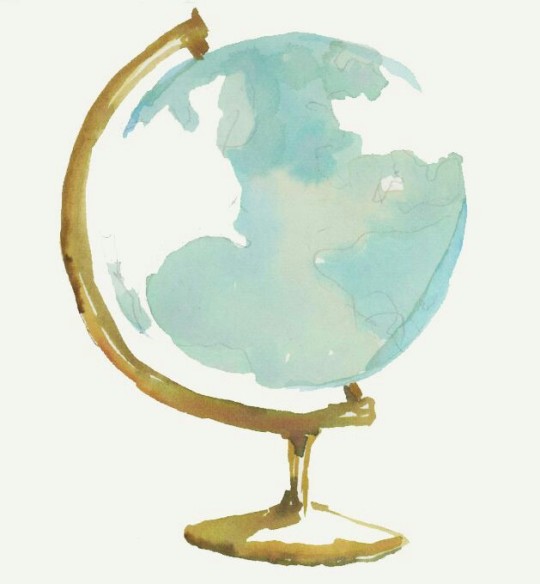



Giving Sadaqah (charity) is not only a great way to fulfill the needs of the poor, but also serves as a purification of the heart. Therefore, it is important to instill a sense of compassion and the love for charity in your children from an early age on. To help you achieve this, I want to focus on three, hopefully original ideas to involve your entire family when giving Sadaqah. However, since they are all considered monetary charity in one way or another, it is important to let your family know that there are many ways to give what is called physical charity: like smiling at others or removing something harmful from the road, and that every good deed, no matter how small, is considered Sadaqah. 1. Sponsor an orphan There are various ways on how to go about sponsoring an orphan. One way that I know of is doing so through the organization called Islamic Relief. The sponsorships they offer definitely do not cost the world and many Muslim families can afford it. For the two Eids, you can send extra money to make sure that the orphan child also gets to enjoy the religious holidays. The sponsorship will in sha Allah broaden the cultural horizon of your children because they will be likely to develop an interest for the country and culture that the orphan is from. To strengthen the bond between the orphan and your family even more, you can write letters to them as a family or help your kids do so. Know that you and your family will be giving this child opportunities that he/she would otherwise never have. And since your family will be supporting an orphan for many years to come, you will all in sha Allah be showered with blessings and be close to the Prophet in Paradise, as he said: “I and the one who looks after an orphan will be like this in Paradise,” showing his middle and index fingers and separating them. [Bukhari] 2. Host a dinner party I personally am not a huge fan of hosting dinner parties during Ramadan as I feel it takes away precious time from important worship. However, I don’t have anything against them during the rest of the year – if they are done with the right intention that is. Why not invite some family friends and/or neighbors over for dinner, preferably some who have kids themselves? This in itself is already considered Sadaqah. Get your whole family involved when it comes to the preparation of the dinner. Decide on a meal with your kids and spouse, go grocery shopping as a family and spend time in the kitchen together preparing the food. Decorate the table and create a nice atmosphere for your guests. Once a year or so, you can take it to the next level by inviting more people to the dinner party and at the same time collecting money for a good cause. Make sure to agree with your family and guests on a charity or project to give it to. This way, you will not only be rewarded for feeding others, but also for encouraging them to spend in the path of Allah themselves. 3. Visit a local orphanage Look for an orphanage in your area and plan a visit with your family. Speak to the person in charge and agree on a date and time. Let your kids help you prepare little goodie bags filled with sweets, pencils, uplifting hadiths/quotes etc. Most of the children at orphanages have been through a lot, so if you, or anyone you know, are able to make balloon sculptures and similar handicrafts, use this talent to make them laugh. You can also encourage your kids to bring some of their favorite books, so they read stories to the children at the orphanage. Also, buy some other essentials, like soap, toothpaste, towels or food items depending on what the orphanage needs the most. This visit will definitely be something that your kids will remember for a long time. In sha Allah, they will realize how good their life is and will appreciate you as their parents much more. Make the intention along with your loved ones to try out (at least) one of the above-mentioned projects on the coming weekend or the first available opportunity. I would love to know if you have any more ideas on how to give Sadaqah as a family.
#charity#sadaka#صدقه#Islam#manners#community#humanity#how to be better#orphan#يتيم#حديث#أخلاق#إحسان#excellance#mom#mum#montessori#home schooling#teach me#give#act#kids#inspire#wellness of heart
0 notes
Text
And I Darken (The Conquerer’s Saga, #1) by Kiersten White
Published June 28, 2016 by Corgi Childrens
RRP AUD $19.99
★★★☆
No one expects a princess to be brutal. And Lada Dragwlya likes it that way. Ever since she and her gentle younger brother, Radu, were wrenched from their homeland of Wallachia and abandoned by their father to be raised in the Ottoman courts, Lada has known that being ruthless is the key to survival. She and Radu are doomed to act as pawns in a vicious game, an unseen sword hovering over their every move. For the lineage that makes them special also makes them targets.
Lada despises the Ottomans and bides her time, planning her vengeance for the day when she can return to Wallachia and claim her birthright. Radu longs only for a place where he feels safe. And when they meet Mehmed, the defiant and lonely son of the sultan, Radu feels that he’s made a true friend—and Lada wonders if she’s finally found someone worthy of her passion.
But Mehmed is heir to the very empire that Lada has sworn to fight against—and that Radu now considers home. Together, Lada, Radu, and Mehmed form a toxic triangle that strains the bonds of love and loyalty to the breaking point.
US Cover
UK Cover
And I Darken was one of my most anticipated reads of June 2016, but to be honest it kind of fell short of my expectations. I didn’t realise this was a historical-fiction-turned-fantasy novel, but I suppose it would’ve been better had I known that Lada was based off of Vlad the Impaler, so I would’ve been able to read up on him in preparation. I think it would’ve contributed to a generally better reading experience had I done that.
Since I’ve been following Kiersten on Twitter for a while, I’ve become accustomed to her hilarious tweets, and I suppose I expected a bit of humour or a slight whimsical touch to the book, however, it was so, so serious. Not necessarily in a bad way, but it would’ve been nice to have a little comic relief in there.
One thing I loved, was the role that the religion played in the book. While the themes were clearly there, Kiersten wasn’t shoving it down the reader’s throat, but instead offering an informational viewpoint on the Islam religion.
Lada Dragwlya is by no means a nice person and at the beginning, I loved how ruthless and generally badass she was, but the further I read onwards, the more I wanted character growth, because I couldn’t connect with her at all. I don’t mean for her to turn into a happy-go-lucky princess who is gentle and loves everyone, but I just wanted her to be able to express a little more emotions rather than just be harsh all the time.
With Radu, oddly enough, it was the opposite. He was too sweet and gentle the whole time and I wanted him to grow stronger. Also, I kind of got over his constant self-pity. At the beginning, I wasn’t a huge fan of the sibling relationship between him and Lada, because I felt as though Lada should have been protecting him in a way that wasn’t hurting him??? But toward the end as things played out I found myself getting worked up about their relationship, mostly because so much could’ve been avoided if they would have just talked to each other.
Now there’s the issue of the dreaded love triangle. I really don’t like love triangles, and this one wasn’t an exception. I found that it wasn’t really necessary and I didn’t really like Mehmed. I felt that he was too spoiled and generally not as invested in any sort of relationship.
Regardless, I’ll definitely be reading Now I Rise, hopefully I’ll get the character development I so desperately want! The series definitely has potential, but I just found too many things bothered me.
I received a review copy from the publisher
ABOUT THE AUTHOR
KIERSTEN WHITE is the New York Times bestselling author of the Paranormalcy trilogy; the dark thrillers Mind Games and Perfect Lies; The Chaos of Stars; and Illusions of Fate. She also coauthored In the Shadows with Jim Di Bartolo. She lives with her family near the ocean in San Diego, which, in spite of its perfection, spurs her to dream of faraway places and even further away times.
Review: And I Darken by Kiersten White And I Darken (The Conquerer's Saga, #1) by Kiersten White Published June 28, 2016 by Corgi Childrens…
0 notes